High Impact Practice Grants
High Impact Practices (HIPS) are research-backed strategies for teaching and learning that lead to increased retention, completion, and better learning outcomes for students. HIPS provide intentional and integrative approaches for learning that encourage transference of skills and the creation of meaningful connections between experiences.
We are looking for creative projects that engage students (undergraduate and graduate) beyond the classroom, increase their involvement with UNF, and enhance the Northeast Florida community. Projects may include, but are not limited to, first-year experiences, mentoring, learning communities, writing-intensive courses, collaborative assignments and projects, undergraduate research, service learning, community-based learning, internships, and capstone courses and projects. Past projects awarded HIPS funding are described below.
Special consideration will be given to projects that involve students from underrepresented groups, first-generation students, students with families, and students from low-income backgrounds. Projects may be curricular or co-curricular.
What makes HIPS successful?
Effective implementation is the key. When done properly, they include:
- Considerable time and effort requirements for students
- Facilitated learning outside of the classroom (real-world application and relevance is highlighted)
- Meaningful interactions between faculty and students
- Collaboration across disciplines and cultures
- Frequent and substantive feedback
- Reflection and integrative learning opportunities
- Refer to the Office of Experiential Learning for more information about experiential learning opportunities.
What else do I need to know?
HIPS are open to all faculty of any rank, including adjuncts (must be on contract during the semester of the grant and through the timeline of the proposed project). Proposed HIPS projects should be within the scope of the faculty member's expected job duties.
These grants may be awarded to an individual or a small team of faculty and are designed to fund new activities, major revisions to existing learning opportunities, and innovative projects that enhance students' learning experience at UNF.
The grants will be awarded as E & G funds and applicants must familiarize themselves with expenditure guidelines listed on the Controller's website.
HIPS funding cannot be used to reimburse previously completed projects or expenses.
Any proposed travel must follow university procedures for travel approval for all parties traveling. Travel involving students must follow university procedures for student travel. It is the responsibility of the awardee to ensure that they understand and follow any related guidelines, policies, or procedures related to travel.
It is the responsiblity of the awardee to ensure that they understand and follow and guidlines, policies, or procedures related to the completion of their project and use of the awarded funds.
How do I apply for a HIPS grant?
Prior to the deadline, submit the following information to OFE via email using this application.
- Description of project that includes:
- Name of project, names, titles, departments, and contact information of all faculty applying for the grant
- Project summary: Describe the project, including how it increases retention, completion, engagement, and/or better student learning outcomes for students
- Student involvement: Describe how students will be involved and how many students will be impacted by the proposed project (e.g., if the project is to develop a curricular high impact practice that will be used in future sections of a course indicate how many students typically register for that course each semester or, as another example, if the proposed project is to include student research assistants in a semester-long research project indicate how many students will be included in the project). Include the recruitment plan, including a description of any strategies to involve students from underrepresented groups, first-generation students, students with families, and students from low-income backgrounds.
- Timeline of activities (reference HIPS Timeline; explain how the proposed activities and use of funds will fit within the timeline of the HIPS grants). Any proposed travel must occur and be completed before deadlines for the current fiscal year pass. Applications proposing travel to explore future Study Abroad opportunities should consult with the International Center.
- Budget (Clearly indicate amount requested – up to $15,000): Provide an itemized budget of all items needed for the project, including the date at which the funds will be used (HIPS grant funds are classified as E&G and therefore subject to expenditure guidelines listed on the Controller's website). Requested funds for items that are not allowable expenses for E&G funds will not be awarded. Faculty stipends are acceptable and encouraged for new and emerging initiatives.
- Grant Oversight: Who will be responsible for the project? Who from the faculty member's department(s) will help the awardee(s) manage the budget (e.g., Office Manager)?
2025 - 2026 HIPs Timeline
The available HIPS funding for the 2025-26 academic year has been awarded. Congratulations to everyone who received HIPS Grants! A list of faculty and descriptions of their projects can be found below.
We hope to offer HIPS Grants in the 2026-27 academic year. Availability of HIPS funds cannot be guaranteed each year because HIPS Grants are funded with non-recurring funds. If we receive funding for HIPS Grants for next year, the HIPS Grants Application due date will be posted on this website, announced in Osprey Update, and advertised at Faculty Association Meetings.
Reminder about Timeline for Fall 2025 HIPS Grants:
Funds awarded will be available for use through the end of the current fiscal year. Awardees will need to work with their department office managers to ensure that they meet all deadlines related to end-of-year purchasing and processing of the funds.
It is important to note that any awarded funds will not roll over to the next budget year. Awarded funds that are not spent by the end of the fiscal year will be forfeited by the faculty member(s). Please note that there are deadlines in advance of end of the fiscal year about when purchases can be made and payments can be processed. Please follow these deadlines and work closely with your office manager to ensure that you meet your department's internal deadlines.
Faculty stipends, like all expenses related to the HIPS grant, will be processed by the faculty member’s department.
Grant recipients will be required to submit a Final Report to update OFE on how funds were used and the ways students were supported. If a Final Report is not submitted, the recipient forfeits the right to apply for a future HIPS Grant. Final Reports for Fall 2025 Grant Recipients will be due by June 1, 2026.
Awardees 2025
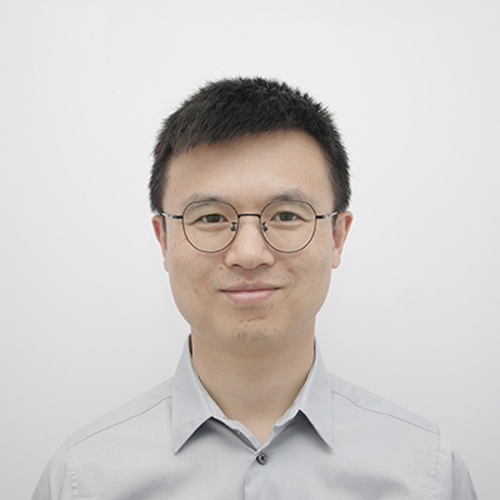
Liangyong Mei | Department of Chemistry and Biochemistry
Research in Organic Chemistry: An Experiential Approach to Enhance Student Skills in the Laboratory and Beyond
This project is designed to immerse students in all aspects of organic chemistry research. Undergraduates will be provided with extensive hands-on, experiential learning opportunities by exploring photocatalysis—a sustainable and environmentally friendly approach to synthesizing organic compounds. They will receive hands-on training in synthetic organic chemistry, including substrate synthesis, catalysis, and product characterization. These experiences will help them connect theoretical knowledge from organic chemistry lectures to real-world applications while developing fundamental laboratory skills. Beyond laboratory work, they will also strengthen broader scientific abilities such as data analysis, teamwork, and communication by presenting their findings at UNF symposiums (e.g., U-GLIDE, FURC, and SOARS) and at the ACS Spring 2026 conference in Atlanta, GA. The project also aims to produce publication(s) in Science Citation Index (SCI) journals, offering students valuable credentials and strong preparation for future scientific careers beyond UNF.
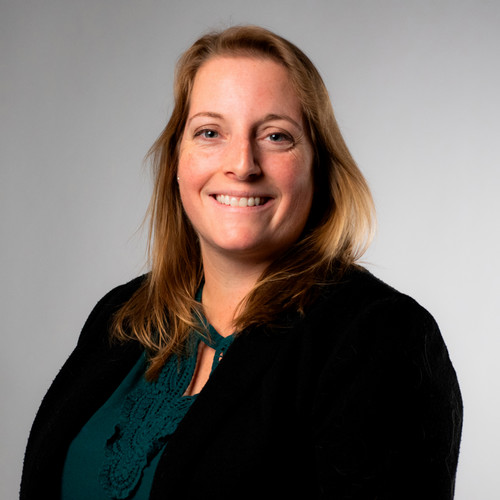
Serina Wittyngham | Department of Biology
Coastal Blue Carbon Cycling: A Course-Based Undergraduate Research Experience (CURE)
This new summer course will provide students with valuable hands-on research experience following samples from "core to carbon". Students will start with field-based sediment core collection in the Webb Coastal Research Station and end with laboratory work to process samples and calculate carbons stocks. The ability of our coastal ecosystems to capture and store massive amounts of carbon in their soils is both ecologically and economically valuable, and this value assessment begins with field research. This course offers a unique opportunity for students to participate in the research process from beginning to end, while directly contributing to our knowledge of carbon cycling in our very own Webb Property.
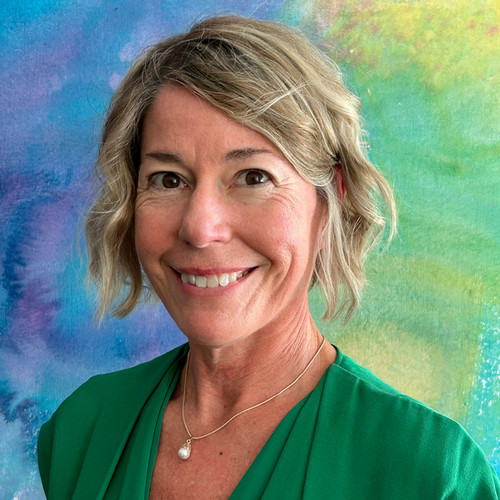
Elizabeth Heuer | Department of Art, Art History, and Design
The Crown-Craftsmen Project
This project immerses UNF students in experiential learning through community-based research, exhibition development, and digital archiving. In Spring 2026, students enrolled in ARH 3930: Crafting America will partner with the Mandarin Museum & Historical Society to research and curate an exhibition and digital archive documenting the Crown Craftsmen Association—a collective of Northeast Florida studio craft artists active during the 1970s and 1980s. The project culminates in a public exhibition, digital archive, and artist residency that preserve an overlooked chapter of Jacksonville’s craft history while giving students hands-on experience in curatorial practice, research, and public engagement.
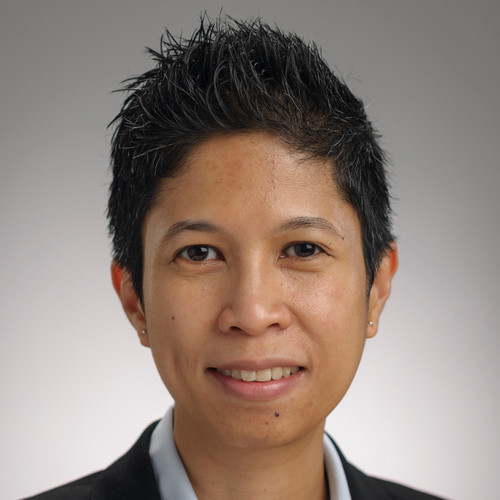
Candice Tahimic | Department of Biology
Next-Gen STEM: Preparing Students for Careers in AI-powered Biomedical Discovery Using Spaceflight Models
This project seeks to prepare students for the growing integration of artificial intelligence (AI) in biomedical research by providing hands-on experience with AI-powered tools for protein design and analysis. Students will investigate how specific proteins contribute to spaceflight-induced cellular aging using a combination of AI-powered computational databases and molecular biology techniques. The project also fosters professional development through mentorship, conference participation, and networking with STEM professionals in space biology and computational science. Additionally, this project will explore the feasibility of integrating a lab module on AI-powered protein engineering in a teaching lab environment. Overall, this initiative aims to promote student retention and enhance readiness for research and industry careers in the evolving biomedical field.
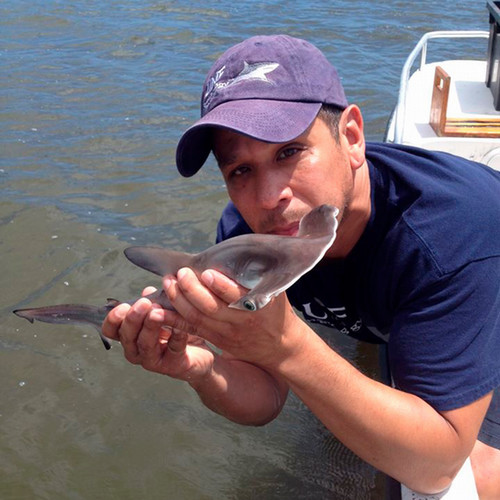
James Gelsleichter | Department of Biology
Shark Ecology: A Course-based Undergraduate Research Experience (CURE)
This project provides valuable, hands-on research experiences in marine science to undergraduates by directly involving them in a federally-supported, long-running (2009 – present) scientific survey of coastal shark populations in northeast Florida and southeast Georgia waters. Every week over the 12-week Summer C period, undergraduates enrolled in the UNF Shark Ecology CURE will participate directly in field-based research on sharks, conducting longline surveys to estimate local trends in shark abundance and performing tag-and-release fishing to examine long-term patterns in shark movement and migrations. Students will also learn how to ethically and humanely obtain biological samples (e.g., blood, fin and muscle biopsies) from living sharks, as well as how to use these samples to conduct laboratory assessments of animal health and reproduction and present the results of this work in professional settings. This project builds on over 10 years of success in using the Shark Ecology CURE to provide UNF students with high-impact learning experiences.

Nelson Delfino de Campos Neto | School of Engineering
Design and Construction of a 3D Printer for Metal Parts by Wire Directed Energy Deposition (DED) Technology: A Challenging Senior Capstone Design Learning Opportunity
This challenging senior capstone design project aims to design and build a 3D printer for metal parts by integrating a welding machine and two controlled wire feeders with a robotic arm. The system will deposit multi-metal layers on a custom-designed printing bed in a controlled manner, using modifiable computer code to manufacture the 3D metal part. The technology employed is called Wire Directed Energy Deposition (Wire DED). Building this printer requires several components, including a robotic arm, welding machine, control systems, sensors, a positioning table, a printer bed, wire feeders, and an exhaust system, etc. The biggest challenge in this project lies in the complexity of integrating and automating all these systems.
This senior capstone design project will contribute to increased student retention and improved student outcomes. Once completed, the system is expected to become a valuable research tool on campus, fostering further collaboration and providing more research opportunities for students. Undergraduate students will be able to register for EML4911 Supervised Undergraduate Research, and graduate students for EMA6971 Graduate Thesis Research to use this research tool. The additional hands-on experience made possible by this system will continuously enhance student retention, completion, and overall student outcomes.

Annalaura Mancia | Department of Biology
Environmental RNA Barcoding as a Novel Molecular-Based Approach to Track the Bottlenose Dolphin Population in the St. Johns River Estuary
This project focuses on the application of a novel, non-invasive and reliable molecular technology to monitor the distribution of marine mammals in the St Johns River (SJR). Specifically, the technology is meant to analyze environmental RNA (eRNA) isolated from water samples collected from targeted locations of the northeast section of the SJR. The eRNA will be informative of the presence and distribution of the Tamanend's bottlenose dolphin (Tursiops erebennus, TE), a year-round resident of the river. The Lower basin of the St. Johns River is acknowledged as an ecologically vulnerable watershed, threatened by rising salinity, pollution, and environmental hazards. These anthropogenic impacts affect the river ecosystem disrupting present patterns of plant and animal distribution. The application of eRNA methodology could significantly improve the detection and monitoring for the TE population of the St Johns River, informing on shifts in distributions related to any biological, chemical and/or physical stressors detected.
Students will have the opportunity to combine field work and hands-on experience outside the classroom to classic molecular biology work in the laboratory. This project provides an excellent opportunity for undergraduates to learn and understand cutting edge techniques that are employed in the identification of threats to local biodiversity and promoting public engagement and awareness.
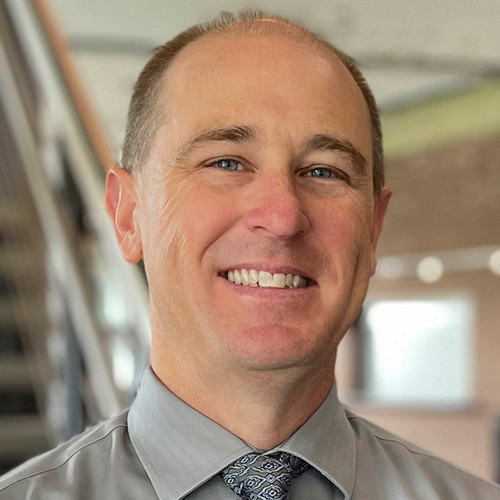
Tim Groulx | School of Music
Partnering with the Profession: Engaging in Professional Development and Fostering Career Opportunities for Pre-Service Music Educators
UNF students pursuing a career as music educators in Florida’s public schools will attend the abundant and high quality professional development experiences offered at the Florida Music Educators Association conference in Tampa, Florida January 14th-17th, 2026. At this conference students meet future colleagues and employers, learn best practices in music education at workshops featuring leading professionals that reach far beyond the capacity of a 4-year degree, and experience world-class performances. Attendees in turn take the benefits of the conference with them and implement these ideas in their own teaching, benefiting their future students and the broader musical community.
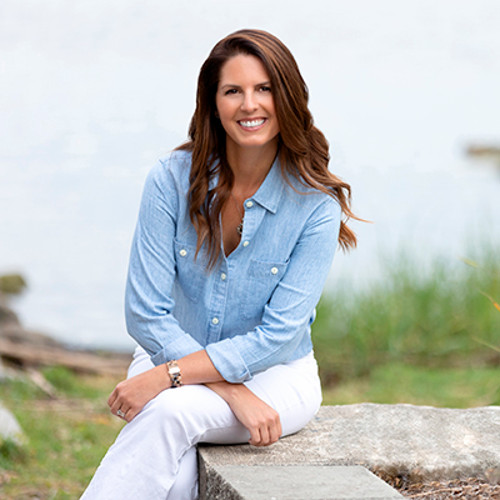
Quincy Gibson | Department of Biology
Dolphin Behavioral Ecology: Field-based Research Experiences for Students
UNF's Dolphin Research Program provides year-round opportunities for students to gain valuable, hands-on experience conducting field-based research. This project will support research opportunities for Directed Independent Study (DIS; BSC4905) students during Spring 2026 as well as the Dolphin Behavioral Ecology Field Course (ZOO4551C) in Summer 2026. In both semesters undergraduate students will be introduced to the behavioral ecology of local estuarine dolphins as they work alongside faculty and graduate students onboard the research boat in the St. Johns River. This course-based undergraduate research experience (CURE) offers students a rare and potentially transformative opportunity to engage in the research process while directly contributing to the conservation of local animals and habitats.
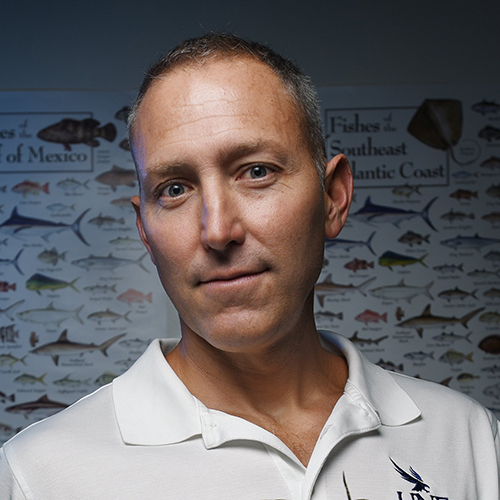
Eric Johnson | Department of Biology
Early Life History of the American Eel: Student Research for Sustainable Management
The project will support the American eel recruitment survey, a multi-decade collaborative research partnership between UNF, the Florida Fish & Wildlife Commission and the Guana Tolomato Matanzas National Estuarine Research Reserve. Students will gain hands-on field and laboratory research experience, attend research seminars by scientists, state biologists and federal fishery managers, and work in teams to develop independent research projects using the 25-year data set. The project will culminate in a capstone experience when the team travels to present their findings at the 54th Benthic Ecology Meeting, which brings together researchers, biologists, and fishery managers from across the United States. The experience will provide students the opportunity to see how their research efforts help to inform sustainable management for this important coastal resource.
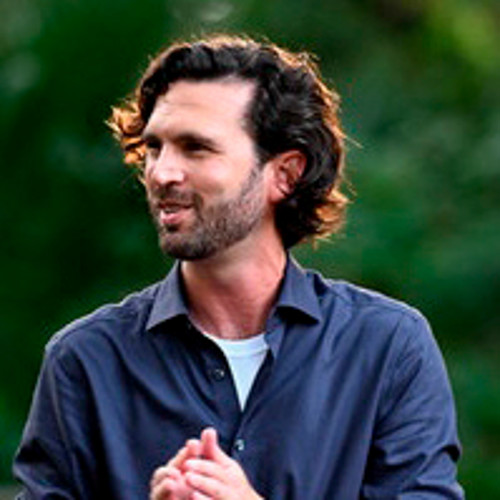
Will Pewitt | Hicks Honors College
Crossing Currents: Power & Place in Premodern Worlds
This iteration of Crossing Currents extends a successful student-faculty research collaboration by inviting undergraduates to explore the theme of “Power and Place” across global premodern contexts. Through interdisciplinary methods—ranging from translation studies and comparative mythology to historical linguistics and digital archival research—students investigate how authority, belief, and identity were shaped across cultures and environments. Topics span from syncretic religion to state formation, medicinal evolution to avian symbolism, as well as artistic and scientific transmission; each of these trace how local and transcultural forces shaped the early modern imagination. The project combines faculty mentorship with editorial and research training, culminating in a published anthology that amplifies undergraduate scholarship and professional readiness in the social sciences and humanities.

Jacqueline Meier | Sociology, Anthropology, and Social Work
Laura Habegger | Department of Biology
Expanding and Curating a Natural History Collection for Interdisciplinary Research and Teaching at UNF
Natural history reference collections are critical resources for teaching a variety of classes while also supporting research in animal diversity, anatomy and human-environmental interactions among various disciplines. This interdisciplinary project will give students hands-on experience in natural history collections work at UNF. Students will learn preparation, preservation and curation skills and work to formalize and expand archaeological and biological collections used for teaching and research across two departments. They will also learn cutting edge techniques such as surface scanning and CT scan imaging, modeling and 3D printing as they work with us to build a better collection of natural history specimens for teaching and research purposes across the Biology and Anthropology collections.
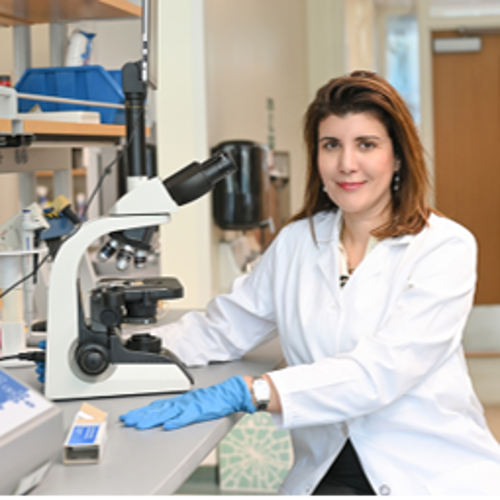
Alya Limayem | Department of Biology
AI-Powered Microbial Quality Monitoring from Local Wastewater Plants to Rivers For Effective Safeguard Through Nanoremediation Approaches
This project addresses the growing concern of drug-resistant pathogens in reclaimed water while promoting sustainable reuse practices in Northeast Florida. In collaboration with St. Johns Riverkeeper, JEPB, and JEA, students will collect and analyze water samples from local rivers and treatment facilities. Using eco-friendly nanomaterials such as zinc oxide, titanium dioxide, and chitosan/alginate composites, they will explore innovative purification methods enhanced by AI-assisted data analysis. The project combines fieldwork, laboratory training, and data-driven research, equipping students with advanced skills while providing valuable insights to improve regional water quality and public health protection.
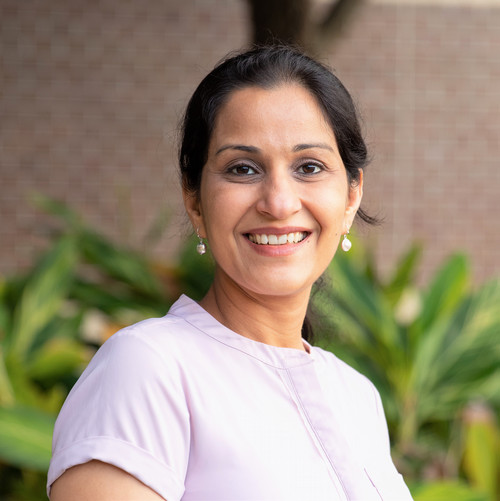

Hemani Kaushal | School of Engineering
Nirmalkumar Patel | Department of Physics
Design of Satellite Systems: An Interdisciplinary Experiential Learning Course
This interdisciplinary course brings together students from Engineering, Computing, Physics, and Mathematics to encourage collaboration across diverse technical fields. It integrates theoretical concepts with hands-on applications in CubeSat design and stratospheric balloon missions, equipping students to address real-world challenges in space systems engineering. Through experiential labs, students gain experience with professional tools used in national space programs while studying topics such as Physics of the Space Environment, Communication Subsystems, CubeSat Structural Design, Power Budget and Data Handling, and Case Studies of Current Satellite Missions. This initiative strengthens UNF’s commitment to student success, retention, and workforce readiness, establishing a sustainable academic pipeline that prepares the next generation of innovators in satellite systems and space technology.
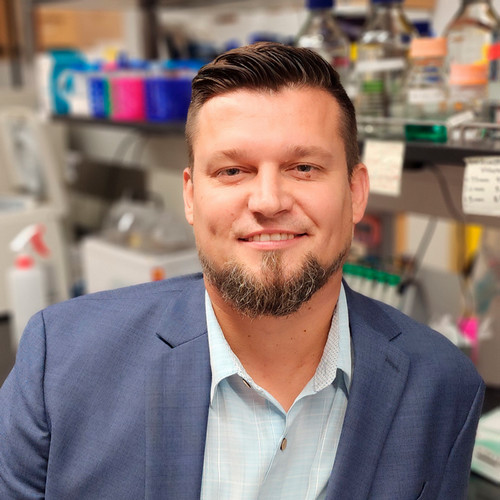
Szymon Ciesielski | Department of Chemistry and Biochemistry
From a Laboratory Bench to a National Conference – a Transformative Research Experience
This transformative experience will expose talented UNF students to rigorous biochemistry research by participating in the ongoing experimental efforts of Dr. Ciesielski's laboratory group. Students will participate in designing and conducting experiments utilizing state-of-the-art instrumentation in the field of protein biochemistry. Furthermore, they will enhance their understanding of the studied proteins through 3D visualization of their structures using resources at the UNF Virtual Learning Center. After analyzing the collected data, students will have the opportunity to present their research findings at the national level Annual Scientific Conference of the American Society for Biochemistry and Molecular Biology (ASBMB). This comprehensive experience will provide UNF students with not only research experience but also the opportunity to network and pave the way for their future scientific careers.
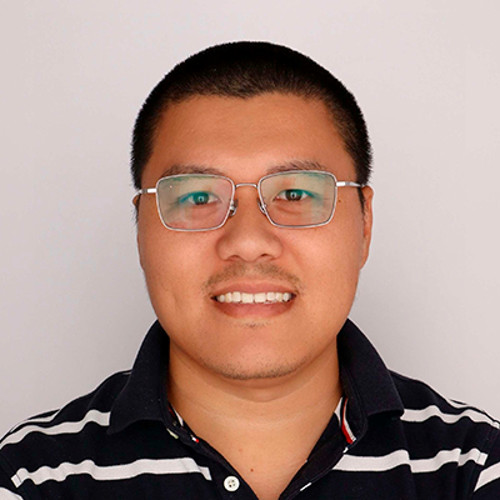
Longfei Zhou | School of Engineering
Bridging Course-to-Competition: From “Additive & Netshape Manufacturing” Course to SAMPE Student Additive Manufacturing Competition
This project embeds a national high‑impact challenge (SAMPE Student Additive Manufacturing Competition, AMC) into UNF’s current Additive & Netshape Manufacturing course. Building on students’ existing 3D modeling and 3D printing skills, the project provides a structured pathway from classroom learning to competitive design, analysis, and public demonstration. Students will learn to design for the AMC constraints, produce and iterate prototypes, prepare an analysis‑driven design summary, and attend and compete at the annual AMC event.
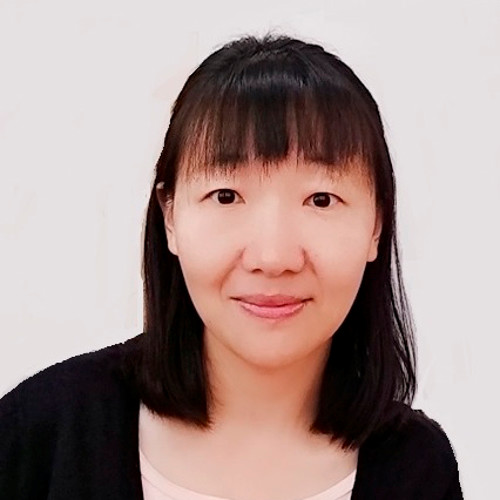
Aiyin Jiang | Department of Construction Management
Women in Construction: Community Engagement and Experiential Learning Through Design and Build
The construction industry has long been male-dominated, and this trend is reflected in the student demographics of the Construction Management (CM) department within the College of Computing, Engineering, and Construction, where female student representation remains significantly low. The Butterfly Garden project at Tocoi Creek High School is a community service initiative addresses the underrepresentation of women in construction. The project will engage CM students, particularly members of the Women in Construction student club, in designing and building a butterfly garden alongside industry professionals. Through this hands-on, experiential learning, CM students will apply classroom knowledge, mentor high school students (including their Women in Construction club), and strengthen community connections. Expected outcomes include improved student retention—especially among women in construction—greater ties between UNF and Northeast Florida, and inspiration for high school students to pursue construction engineering and management careers. The initiative highlights High Impact Practices by combining service learning, experiential learning, near-peer mentorship, interdisciplinary collaboration, and a focus on diversity and inclusion in the construction engineering and management field.
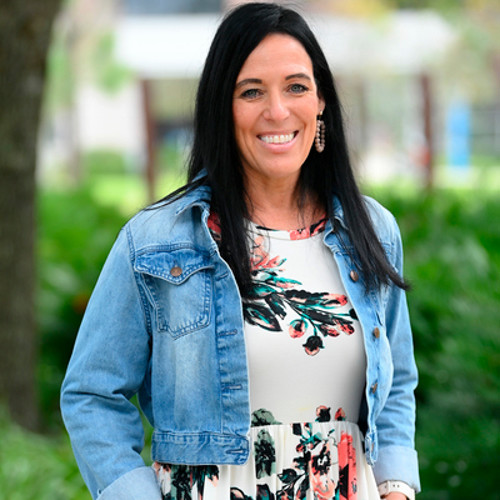
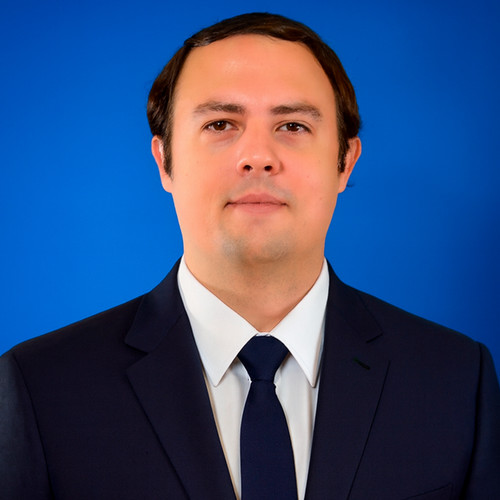
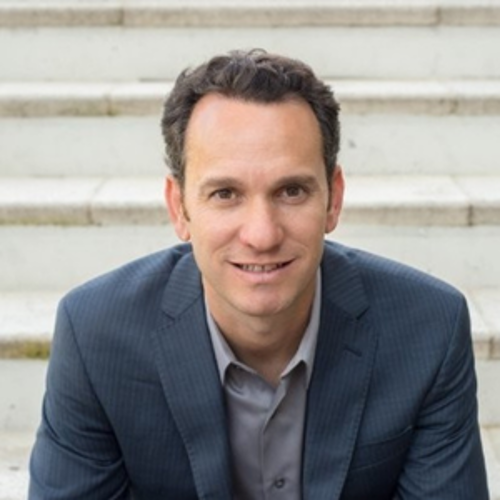
Kristi Sweeney | Leadership, Organization, & Community Impact
Sean Davis | Leadership, Organization, & Community Impact
Brian D'Amato | Leadership, Organization, & Community Impact
Sport Performance Analytics Integration (SPAI)
The Sport Performance Analytics Integration (SPAI) initiative immerses UNF students in hands-on, data-driven learning experiences at the intersection of sport, technology, and analytics. Using live performance data from female soccer athletes, students apply advanced statistical and machine-learning techniques to model player workload, injury risk, and performance outcomes. SPAI connects directly to coursework, digital badges, and interdisciplinary research teams, building market-ready skills in data science, sport management, and applied AI. In collaboration with Sporting JAX, this project enhances student engagement, workforce readiness, and community partnerships while advancing UNF’s mission of experiential learning and student success.

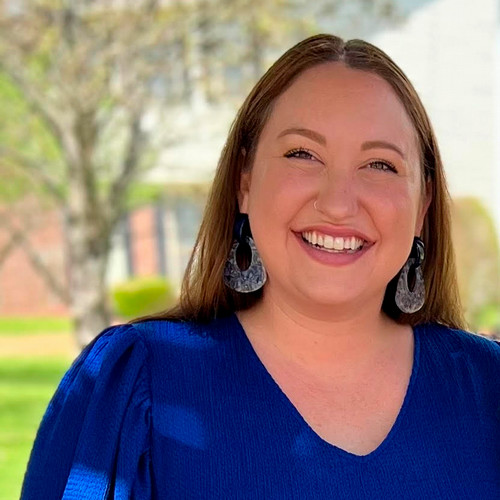

Jasmine Haynes | Sociology, Anthropology, and Social Work
Nikki Runion | Sociology, Anthropology, and Social Work
Candra Skrzypek | Sociology, Anthropology, and Social Work
Building Social Work Leadership Through Legislative Engagement
This project provides undergraduate (BSW) and graduate (MSW) social work students with the opportunity to participate in the National Association of Social Workers (NASW) Florida Chapter Legislative Education Day in Tallahassee. This annual two-day event is a cornerstone of policy practice in social work, offering students direct exposure to the legislative process, networking opportunities with professionals, and engagement with organizations addressing the needs of Florida’s most vulnerable populations. Through specialized training and participation in committee meetings and legislative visits, students gain experiential learning that strengthens their leadership, communication, and professional skills. The project deepens connections among students and faculty, while preparing civically engaged social workers who extend UNF’s impact across Northeast Florida.
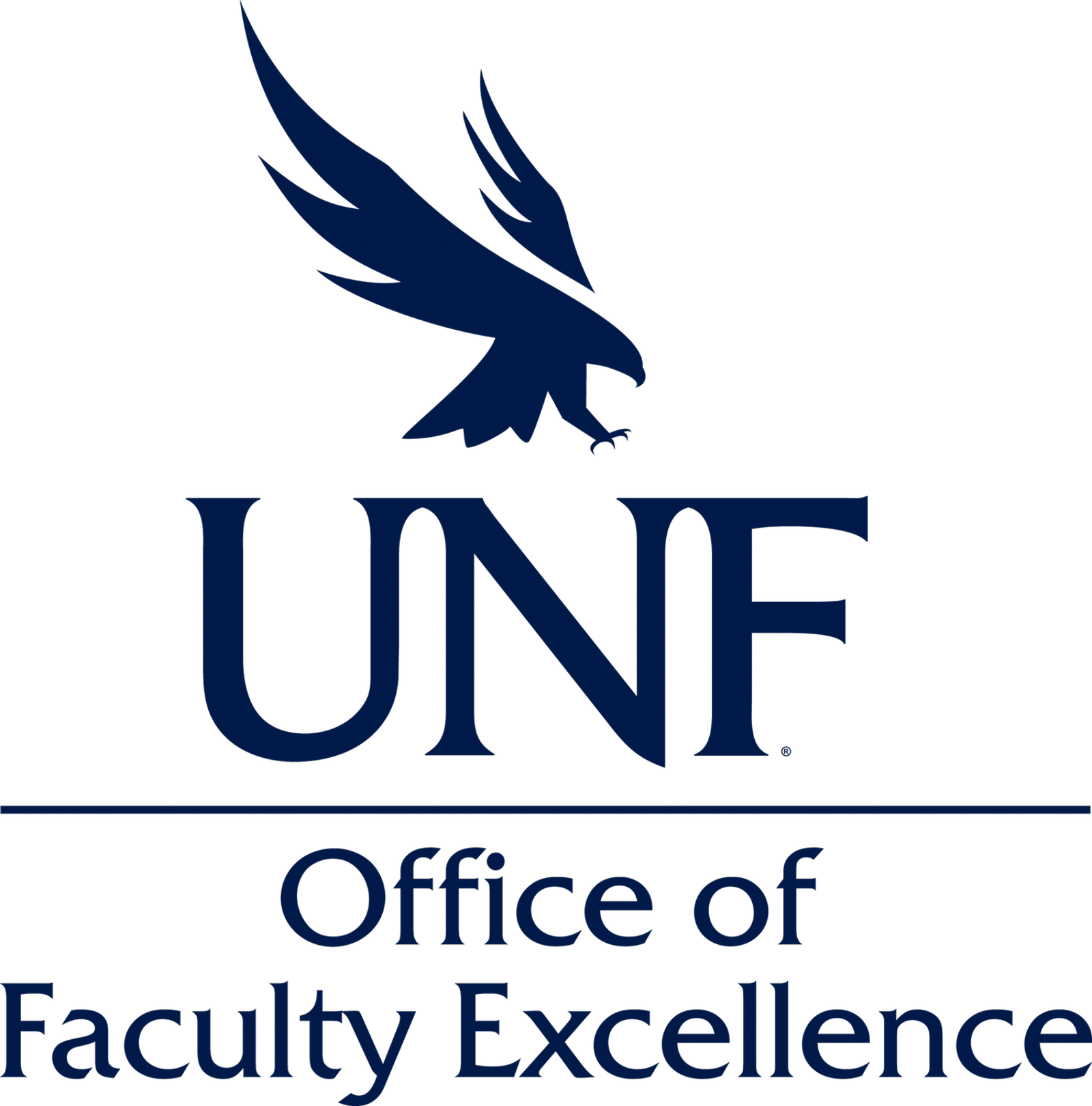
Trevor Dunn | Department of Art, Art History, and Design
Surfboard Design and Fabrication Class
The Surfboard Design and Fabrication course at UNF is a one-of-a-kind experiential course offering where students earn credit for designing and building their own surfboards. It is the only known college-level course worldwide offering this opportunity. The course integrates art, industrial design, engineering, and problem-solving while immersing students in every stage of the process—from research and concept development to shaping, fabrication, and finishing.
By bridging theory with hands-on application, the course strengthens student engagement and promotes deeper learning. Students leave with transferable skills in design, fabrication, material science, safety, and creative problem-solving. This direct connection between academic knowledge and real-world practice significantly enhances retention and completion, as students see tangible outcomes from their work.
Awardees 2024
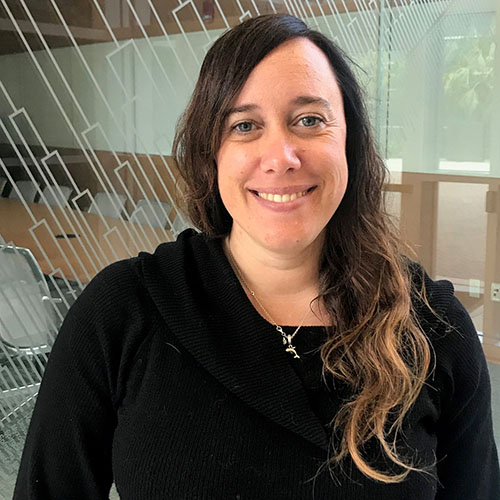
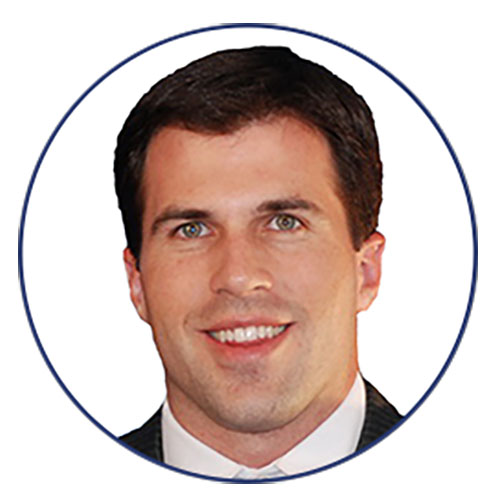
Laura Habegger | Department of Biology
Grant Bevill | School of Engineering
Anatomy in 3D: An Interdisciplinary Course for Biologists and Engineers
This interdisciplinary course is designed to train biology and engineering students in the innovative field of medical 3D modeling and printing. In collaboration with the 3D Anatomic Modeling Unit (AMU) at the Mayo Clinic, students will work on real clinical cases using medical imaging, rendering software, and a variety of 3D printers. As a rapidly growing field within the health industry— including surgery, prosthetics, and medical training — 3D medical modeling offers students at UNF a unique skill set that can unlock future opportunities in medical sciences.
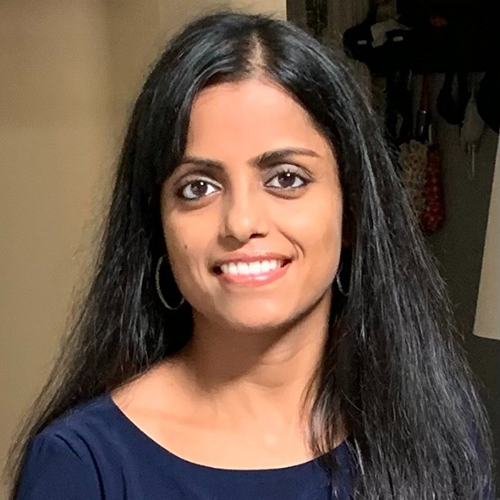
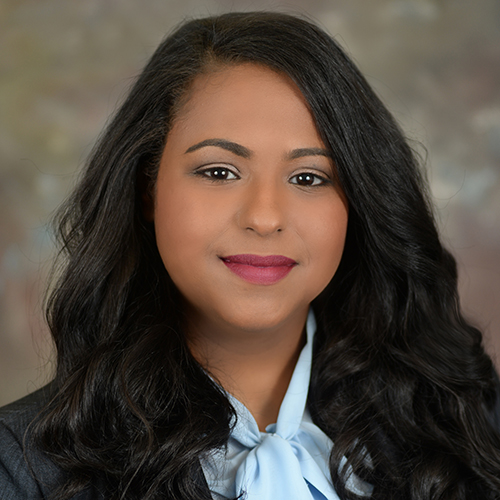
Chitra L.K. Balasubramanian | Department of Physical Therapy
Hanadi Hamadi | Department of Health Administration
Global Health Immersion: Exploring Physical Therapy and Health Administration Practices in India
Drs. Balasubramanian and Hamadi propose to travel to India to plan a two-week study abroad program that offers graduate Doctor of Physical Therapy students and undergraduate healthcare administration students an intensive experiential learning opportunity, immersed in a different cultural context. This innovative program will provide students the opportunity to explore healthcare practices through a holistic approach that includes comparative health systems, physical therapy practices, public health administration, and community-based health initiatives. Students will engage with the rich cultural heritage of Karnataka, India, visiting key sites such as the globally recognized Manipal Academy of Higher Education (MAHE), local hospitals and clinics, and experiencing the vibrant mix of tradition and modernity in cities like Manipal, Udupi, and Mysore. This interdisciplinary program aims to foster global competencies, cultural awareness, and a deep understanding of healthcare delivery in diverse settings, preparing students for the challenges of an interconnected world.
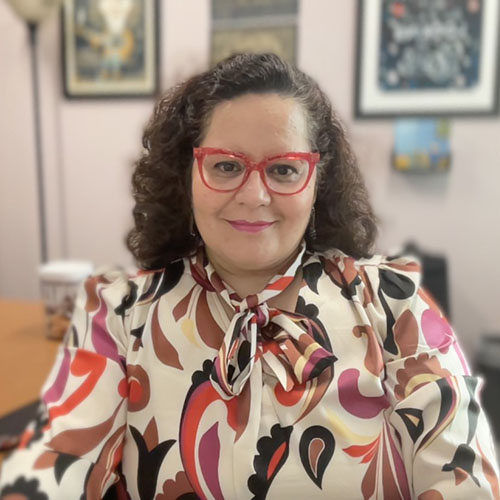
Vanessa Cruz | Department of Art, Art History, and Design
Reality Reimagined: 3D World Building and Design
This project focuses on using VR in a creative environment and encourages collaboration between students from different disciplines. It promotes cross-pollination of ideas and skills, which can lead to more innovative and unique VR experiences. Students will gain practical experience in VR design and development through the hands-on creation of their individual elements. They will collaboratively create a piece that will be “open to the public” in a VR space.

Quincy Gibson | Department of Biology
Dolphin Behavioral Ecology: Field-based Research Experiences for Students
UNF's Dolphin Research Program provides year-round opportunities for students to gain valuable, hands-on experience conducting field-based research. This project will support research opportunities for Directed Independent Study (DIS; BSC4905) students during Spring 2025 as well as the Dolphin Behavioral Ecology Field Course (ZOO4551C) in Summer 2025. In both semesters undergraduate students will be introduced to the behavioral ecology of local estuarine dolphins as they work alongside faculty and graduate students onboard the research boat in the St. Johns River. This course-based undergraduate research experience (CURE) offers students a rare and potentially transformative opportunity to engage in the research process while directly contributing to the conservation of local animals and habitats.
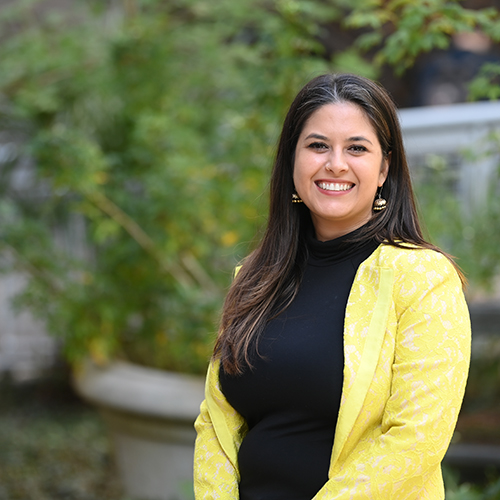
Jessica Chandras | Department of Sociology, Anthropology, and Social Work
Digital Humanities Digital Tools Learning Community
This Digital Humanities learning community opportunity at UNF is designed to formalize and enhance faculty collaboration across colleges and departments for integrating DH into teaching and research in part to enhance High Impact Practices that can be offered to students. Five faculty members with interest in gaining hands-on experience with new digital tools will collaborate during the Spring semester to learn, develop insights, and create resources related to an array of selected DH tools and methodologies. The goal and outcome for this opportunity include promoting pedagogical development for faculty and building a repository of instructional materials that improve experiential learning for students.

Will Pewitt | Department of English
Crossing Currents: Early Modern Research in Atlantic Transculturality
This initiative engages students in the creation of Crossing Currents, a collaborative student/faculty research anthology exploring the Atlantic World’s Early Modern period (~1500-1800) through transcultural lenses. Students will uncover overlooked perspectives—from Indigenous foundation narratives to early petitions for Abolition to poems from marginalized voices—in order to broaden our perspective on discrete but intertwined communities during this tumultuous and formative era. Relying on primary sources such as letters, pamphlets, folktales, and various literary genres, the project aims to bring less familiar viewpoints to light in order not only to expand the historical narrative through experiential learning but also to enhance student editorial, analytical, and curatorial skills regarding academic practice in the Humanities.
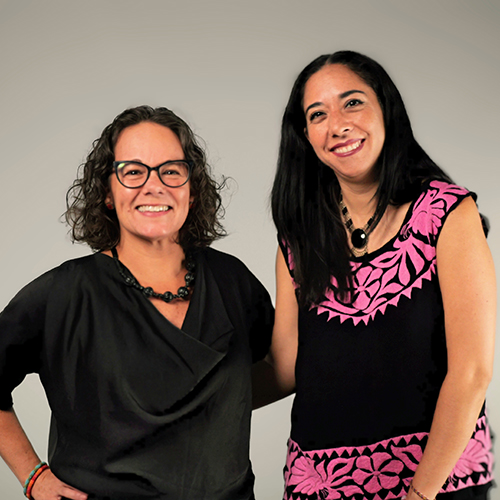
Anne Pfister | Department of Sociology, Anthropology, and Social Work
Andrea Gaytán Cuesta | Department of Languages, Literatures, and Cultures
México Here and There: An Interdisciplinary and Multimedia Study of Mexican Peoples and Cultures
Dr. Pfister (Anthropology) and Dr. Gaytán (English and LLC) will travel to Oaxaca, Mexico in Spring 2025 to plan an interdisciplinary Study Abroad aimed at offering students from a range of different backgrounds the opportunity to explore a richness of topics including transnationalism, immigration, colonialism, language communities, literature and film, current events, education, economics, health, cuisine, folklore, and biodiversity. They will also network with Mexican communities here in Jacksonville to provide students from our classes with local opportunities for language immersion and ethnographic investitation at Mexican cultural events close to home.
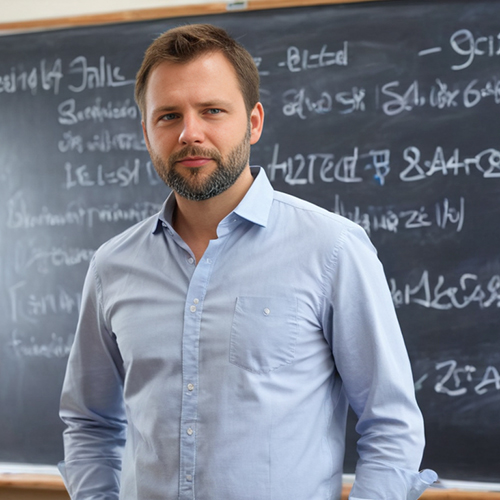
Greg Ciesielski | Department of Biology
UNF Students at the International Congress of Biochemistry and Molecular Biology (ASBMB)
UNF students will get the opportunity to attend the International Congress of the American Biochemistry and Molecular Biology Society in Chicago. Participating students will present the outcomes of their research to the international scientific community, in the field they foresee their future careers in. Moreso, students will interact and exchange ideas with their peers from different institutions, get the first-hand experience in contact with the world-class scientists, and will have the opportunity to discuss their career with recruiters for professional and graduate schools. This meeting provides particularly valuable experience to undergraduate and early career scientists, as it includes events dedicated to this group, such as "Undergraduate student orientation", "Undergraduate poster competition", "Undergraduate student careers workshop", and others. Such authentic scientific experience is one of the most effective approaches to enhance retention and learning outcomes of participating students.
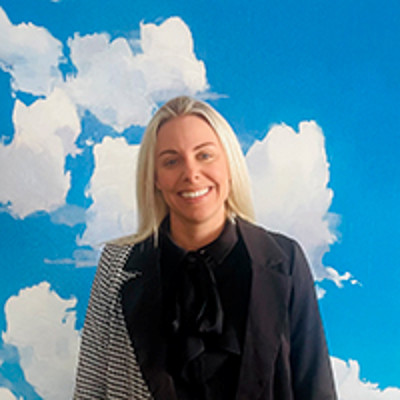
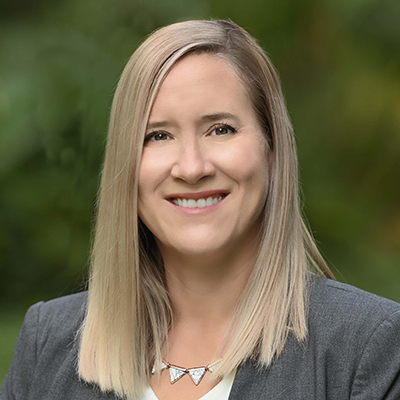
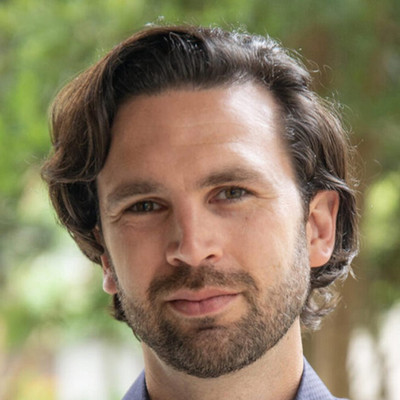
Judith Ochrietor | Office of Undergraduate Research
Fall 2025 Inquiry and Investigation: Institutionalizing Research-Intensive Courses at UNF
Participating Faculty: Mandi Barringer, Suzanne Ehrlich, and Will Pewitt
Through this High Impact Practice (HIP) grant, ten faculty were supported in the development of research-intensive courses at UNF. These courses had been previously tagged as undergraduate research intensive (URES) by their home departments. Working with guidelines and a rubric developed to be comparable to similar designations used throughout the State University System of Florida, these courses now meet the standards for designation as “research intensive” at the course or section level. This project plays a major role in achieving Goal 1.C. of the UNF Strategic Plan, which is to establish initiatives to ensure that all students have access to coordinated and scaled high-impact practices (e.g., student research) to strengthen the academic experience.
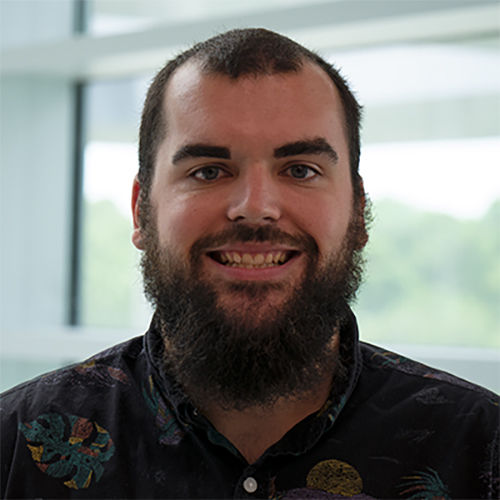
Will Jones | Department of Chemistry and Biochemistry
Enabling One-on-One Mentorship for Cutting Edge Research in Analytical Chemistry
Hands on research in chemistry is by far the best way to form lasting connections between theoretical concepts learned in lecture to real world applications and problems. Unfortunately, analytical chemistry in particular suffers in its traditional introduction to undergraduate students, as the delicate glassware manipulation and solution preparation required for chemical analysis “scares off” a large number of promising scientists before they even begin their formal careers. Research in the Jones lab is focused on the development of novel, matrix-matched analytical calibration methods that improve analyte determinations in a general sense, making chemical analysis simpler and easier to understand with techniques that are widely applicable across many disciplines. This proposal provides the opportunity for undergraduate researchers to lead their own research projects under the guidance of Dr. Jones in Spring 2025 that culminate in a high-intensity, high-impact, five week one-on-one research experience at the conclusion of the semester, which is not possible under the traditional undergraduate academic calendar.
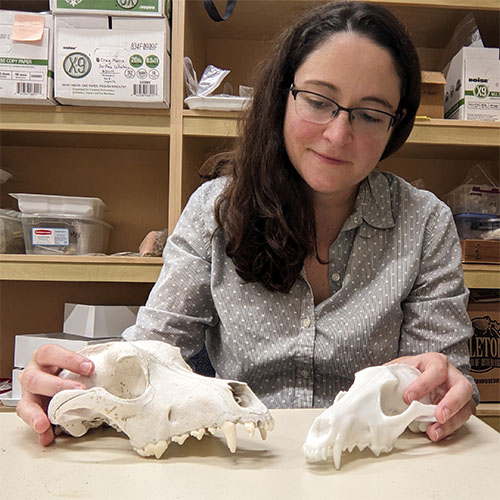
Jacqueline Meier | Department of Sociology, Anthropology, and Social Work
Zooarchaeology Methods: Connecting Ancient Animals and Past People
Students will gain hands-on experience in the ongoing archaeological investigation of a 1,000-year-old site in the Timucuan Preserve in ANT 4931 Zooarchaeology Methods. Funding will support student research in the field of zooarchaeology, or the study of the remains of animals from archaeological sites. The course will teach foundational methods, and students will apply this to collective research of remains from the site of Ceder Point North (recently excavated by the UNF Summer Field School directed by Dr. Keith Ashley). Students will also travel to UF to tour the Environmental Archaeology facilities and help create a faunal curation plan for the UNF Archaeology Lab.
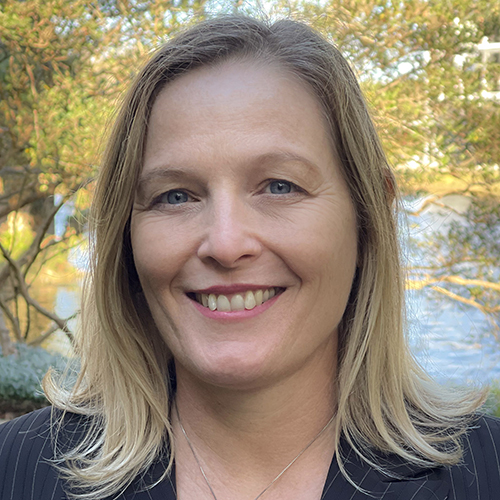
Caroline Guardino | Department of Exceptional, Deaf, & Interpreter Education
Building a Repository of Instructional Strategies for Pre- and In-Service Teachers to use with Diverse Learners who are d/Deaf and Hard of Hearing
Dr. Guardino and undergraduate research assistants will work with in-service and pre-service teachers to collect video vignettes of classroom models of high impact culturally linguistically responsive teaching and differentiated instructional strategies with d/Dhh students. These videos will be made available via a designated website to allow faculty, in-service teachers, and teacher candidates to refer to on a regular basis for ongoing professional development.

Szymon Ciesielski | Department of Chemistry and Biochemistry
Protein Structure and Function: from Virtual Reality to Laboratory Experience
In this project, undergraduate students will be immersed in two worlds, laboratory research experience and virtual reality - both focused on investigating protein structure and function. Students will participate in designing and conducting experiments focused on molecular chaperon proteins, utilizing state-of-the-art instrumentation in the field of protein biochemistry. Furthermore, students will also utilize resources at the Virtual Learning Center in our UNF Library to better understand the structure of studied proteins through 3D visualization in a virtual reality setup. After the data has been analyzed, students will have the opportunity to present their findings at one of the national scientific conferences. This comprehensive experience will expose our talented UNF students to rigorous biomedical research, technological advances, and a research environment at the national level.
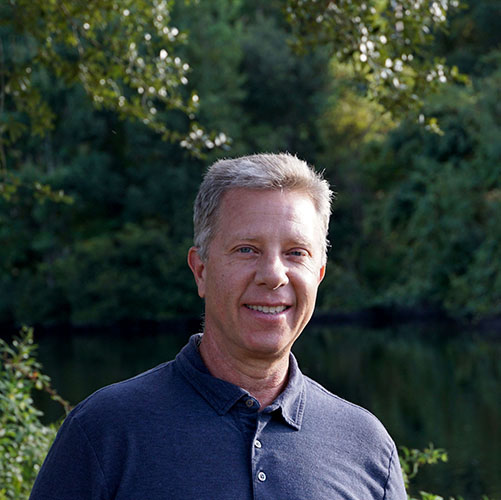
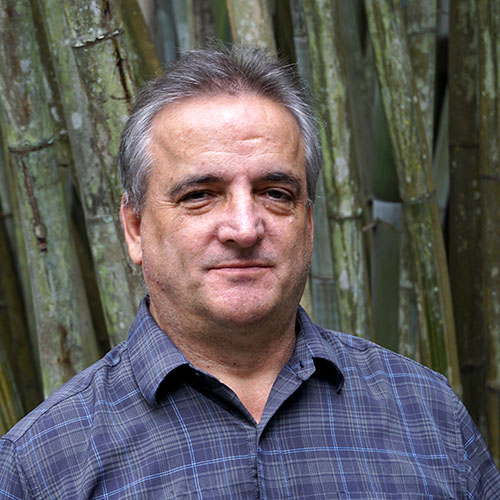
Chris Baynard | Department of Economics and Geography
Robert Richardson | Research Technology
Developing a UNF Drone Program: Training Students for Geospatial Research and Careers
The use of aerial drones is now widespread across various sectors and disciplines and continues to grow rapidly. Military, industrial, real estate and land development, conservation, biology, crime monitoring, firefighting, emergency rescue and building construction are some of the fields that have adopted drone technology. The need for pilots to fly drones and analysts who know how to create actionable data are skills that are in demand across North Florida. Funding from this grant will help purchase drones, pilot training equipment and software to grow UNF's nascent drone program.
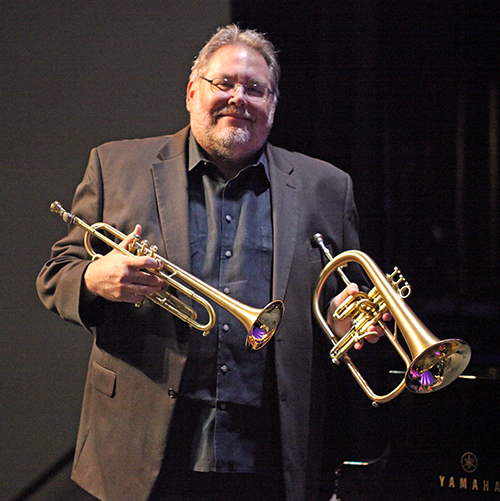
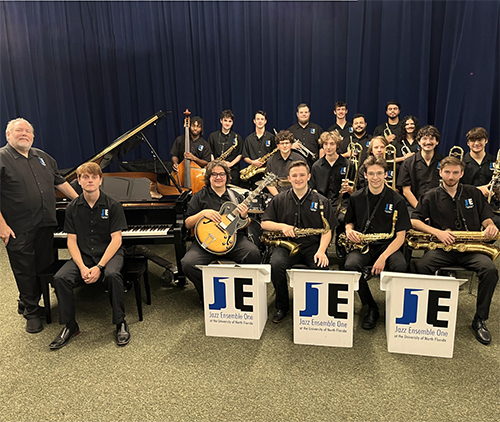
JB Scott | School of Music
University of North Florida Jazz Ensemble 1 Performance at the 16th Annual Jazz Educators National Conference and Presentation of Two Outreach High School Clinic/performances in Atlanta, Georgia
The UNF Jazz Ensemble 1 will attend and perform at the 16th Annual Jazz Educators National Conference in Atlanta, Georgia. This performance will feature UNF Jazz Ensemble 1 students celebrating the musical legacy of Benedetto Guitars, featuring Benedetto signature guitar artists Jack Peterson (founder of UNF guitar program), Barry Green (UNF Professor), Corey Christiansen (USU professor, international artist), and Howard Paul (Benedetto President/CEO. This performance will also feature two commissioned compositions for jazz ensemble by UNF School of Music faculty Barry Greene, and International renowned trombonist Jennifer Wharton. An additional part of this project will be the presentation of two outreach clinic/performances at Atlanta area high schools by the Students of UNF JE1.
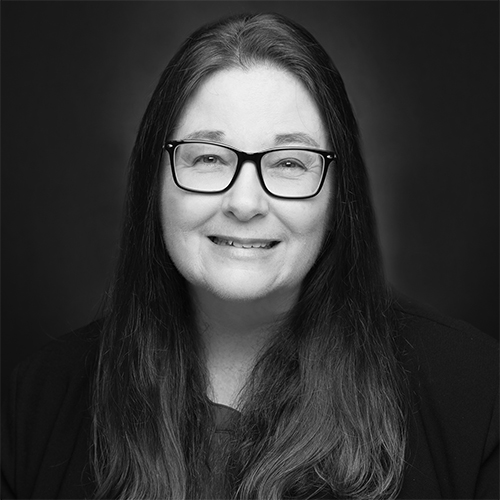
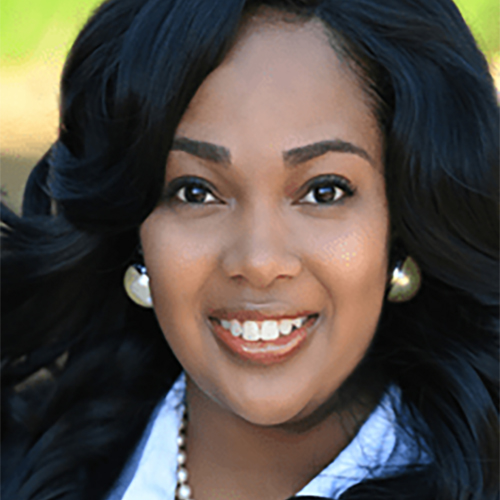
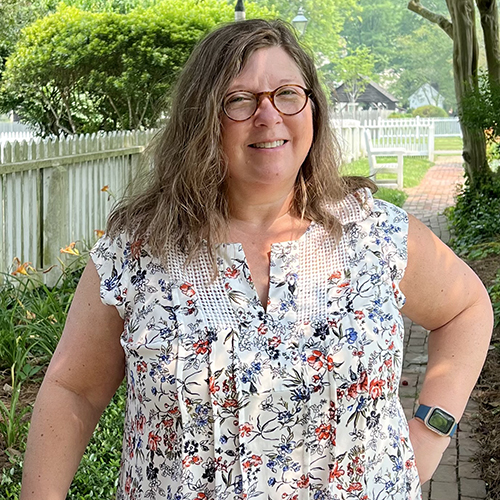
Wendy Baker | Education & Human Services Dean's Office
Raven Robinson-Wilson | Department of Teaching, Learning & Curriculum
Kerri Bell | Urban Internship
Partnering with the Museum of Science & History to Enhance Teacher Preparation Programs Through Educative Experiences
Clinical experiences are instrumental in teacher candidates learning to teach. Traditionally clinical experiences occur in classroom settings. Our approach to providing teacher candidates clinical experiences expands beyond the typical classroom setting. Prior to entering the early clinical experiences teacher candidates met with their supervisors in a different classroom setting, a museum. During these first few weeks, teacher candidates are exploring and developing their skills as a teacher through connections to the museum exhibits, state standards, lesson preparation, and implementation in a developmentally appropriate learning experience. The core of the experience relies on content and pedagogy to be woven around and throughout clinical experiences (NCATE, 2010). The museum experience generates a space for teacher candidates to discover the preparation and act of teaching through a developmental approach of learning. According to the Association of Teacher Educators (2023), clinical experiences need to meet teacher candidates' developmental needs.
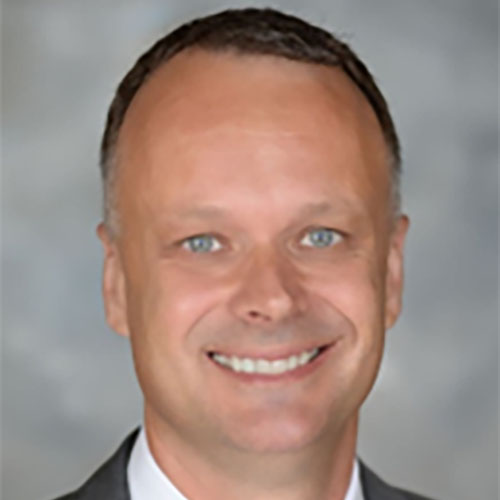
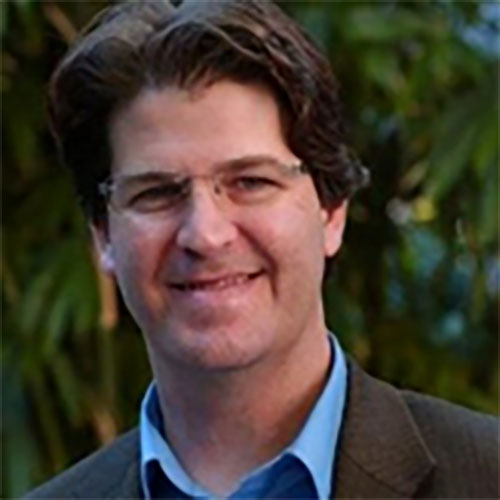
C. Dominik Guess | Department of Psychological and Brain Sciences
F. Dan Richard | Department of Psychological and Brain Sciences
Culture and Cognition: Transformative Teaching of Statistics and Meta-Analysis
The goal of this project is to conduct a meta-analysis on the influence of culture on cognition and to teach students research methodology and advanced statistics in psychological research. The project leads will work together weekly with a team of undergraduate and graduate students to advance their research methodology and statistics skills, including identifying relevant statistical results, estimating effect size across a variety of statistical techniques, interpreting statistical findings, and generating power analyses. These advanced research skills can be generalized to all fields of psychology. Through this lab-based research experience, students will prepare for advanced topics in their related coursework and will advance their skills toward graduate program placement.

Eric Johnson | Department of Biology
Ecology of the American eel: From basic research to sustainable management
The project will support the American eel recruitment survey, a multi-decade collaborative research partnership between UNF, the Florida Fish & Wildlife Commission and the Guana Tolomato Matanzas National Estuarine Research Reserve. Students will gain hands-on field and laboratory research experience, attend research seminars by scientists, state biologists and federal fishery managers, and develop independent research projects using the nearly 25 year data set. The project will culminate in a capstone experience when the team travels to the 5th American Eel Symposium hosted by the American Fisheries Society, which brings together eel researchers, biologists, and managers from across the United States and broader Caribbean. Students will present research posters, attend research talks, and participate in symposium discussions. The experience will allow the students to see how their scientific research efforts help to inform sustainable management for this important coastal resource.

Chris Kelso | Department of Physics
Daniel Santavicca | Department of Physics
Improving Student Engagement in the Department of Physics
This project will move forward several efforts focused on increasing student engagement within the Department of Physics. The grant will fund the work of a student representative selected from amongst the physics majors and tasked with helping the Physics Department move towards increasing shared leadership. The grant will also fund peer mentors to provide advice and support while modeling a successful pathway through a challenging major such as physics. Dr. Santavicca will coordinate a program titled Summer Opportunity for Learning About Research (SOLAR) that features hour-long weekly group meetings over a 10-week period during the summer to discuss various topics relevant to undergraduate research and professional development. SOLAR will culminate with student participants presenting a poster at the Office for Undergraduate Research (OUR) summer student poster session.
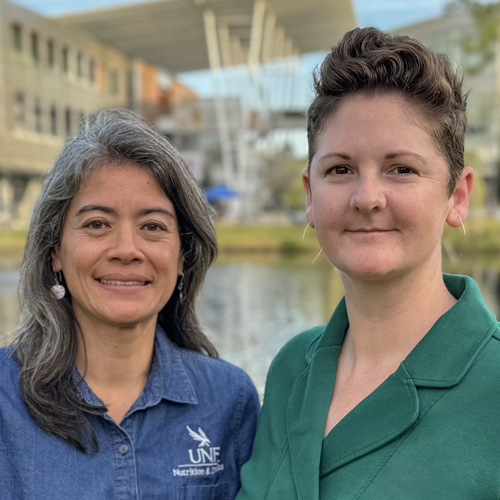
Andrea Arikawa | Department of Nutrition and Dietetics
Sarah Mattice | Department of Philosophy and Religious Studies
Intercollegiate study abroad planning: Japan in context: Philosophy, Religion, and Lifestyle Lessons for Longevity
Drs. Mattice and Arikawa will travel to Japan to plan a three-week study abroad program that offers students an intensive experiential learning opportunity, immersed in a different cultural context, which is directly relevant to their majors in health and humanities. This collaborative program will provide students the opportunity to learn about dietary and lifestyle practices related to longevity through a holistic approach that includes lessons from the Blue Zones (a term coined by the National Geographic journalist Dan Buettner to refer to the communities in the word with the highest longevity), learning about Buddhist history and culture in Kyoto, walking the Kumano Kodo Shinto Shrine trail (one of only two UNESCO World Heritage Walks in the world), and experiencing the dizzying modernity of Tokyo.
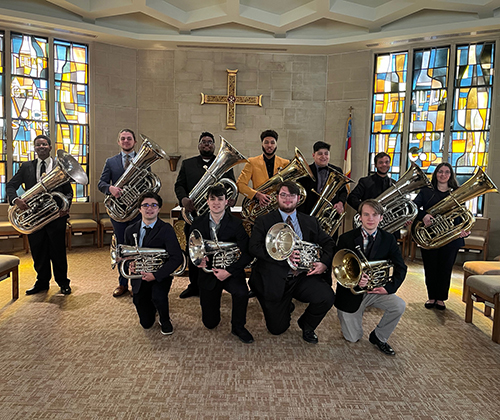
Marc Dickman | School of Music
UNF Tuba and Euphonium Ensemble Performance
Twelve UNF students from the UNF Tuba/Euphonium Ensemble will attend and perform at the Southeast Regional Tuba/Euphonium Conference at Middle Tennessee State University in Murphreesboro, Tennessee on May 9-12, 2024. The students will also participate in masterclasses, clinics, and recitals conducted by the region’s foremost performers and educators. The ensemble commissioned a composition by UNF School of Music faculty, Dr. Joshua Tomlinson, entitled Peace and Plenty. They will be performing the world premiere of this composition at the conference.

Jim Gelsleichter | Department of Biology
Shark Ecology: A course-based undergraduate research experience (CURE)
This project provides valuable, hands-on research experiences in marine science to undergraduates by directly involving them in a federally-supported, long-running (2009 – present) scientific survey of coastal shark populations in northeast Florida and southeast Georgia waters. Every week over the 12-week Summer C period, undergraduates enrolled in the UNF Shark Ecology CURE will participate directly in field-based research on sharks, conducting longline surveys to estimate local trends in shark abundance and performing tag-and-release fishing to examine long-term patterns in shark movement and migrations. Students will also learn how to ethically and humanely obtain biological samples (e.g., blood, fin and muscle biopsies) from living sharks, as well as how to use these samples to conduct laboratory assessments of animal health and reproduction and present the results of this work in professional settings. This project builds on over 10 years of success in using the Shark Ecology CURE to provide UNF students with high-impact learning experiences.
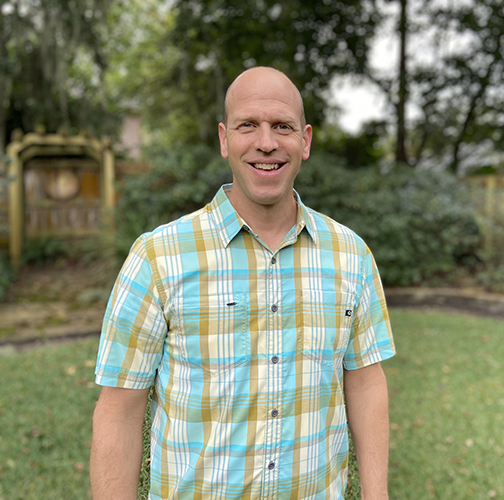
Stephen Heywood | Department of Art, Art History, and Design
Primitive Pottery Techniques and the Fremont Aesthetic
Students will make an in-depth look at the Fremont people and their pottery making processes and culture. This field research type class will be held on site in central and South Eastern Utah. Students will sample and process local clays, visit museums, speak with archeologists, view Fremont artifacts and make and fire pottery in a primitive style pit kiln.
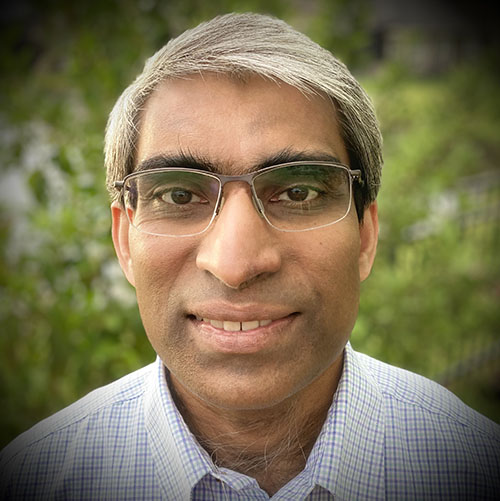
Maitri Warusawithana | Department of Physics
Text, Graphics and Interactive Content Creation for a Textbook on Electricity & Magnetism
Undergraduate students are engaged beyond the classroom in this collaborative and creative endeavor to design and formulate content for a physics textbook. Aimed at a sophomore level class required of most STEM majors, the side-by-side treatment of electricity and magnetism in this unique text fills an obvious yet overlooked void in the approach taken by available textbooks for this course. Incorporating student perspectives from a multitude of backgrounds enhances this creative effort – participating students include Physics, History, and English majors, adding further diversity to the group of student contributors spanning Biology, Mechanical Engineering, Computer Science, Math, and Philosophy.
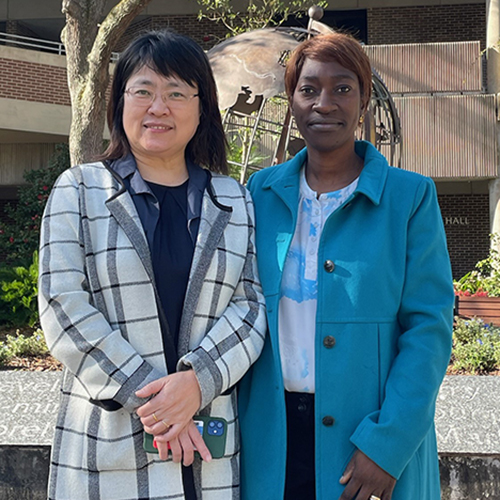
Debbie Wang | Department of Psychological and Brain Sciences
Olutola Akindipe | Department of Psychological and Brain Sciences
The role of culture in behavior and cognition: Study abroad exploration in Africa
This is an exploratory project for a study abroad course to Africa. This study abroad course will be cross listed in the Africana Studies program and the Department of Psychological and Brain Sciences. The goal of the course is to provide our students a first-hand experiential awareness and knowledge of different sociocultural environments and exposure to the cultural similarities and differences between Africa and the United States. Also, students will be able to examine and reflect on the role of culture in behavior and cognition and relate the cultural experiences to the understanding of major psychological concepts, principles, and theories. There will be organized lectures and meetings with faculty and students at a local university, visits to historical and cultural attractions sites, and engagement with civic and community leaders, among others.
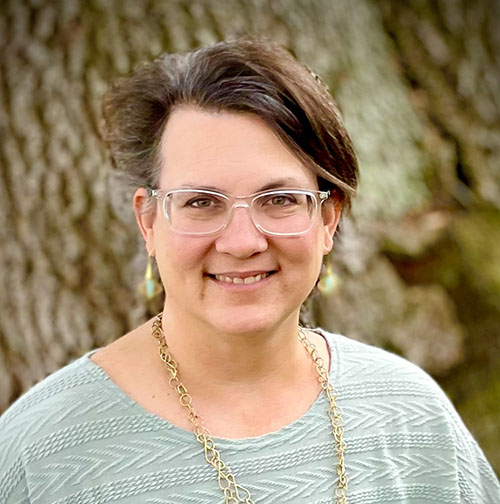
Amy Keagy | Department of Biology
Creating a Bridge to Undergraduate Research in Biology
Course-based undergraduate research experiences (CURE) extend research experiences to all students within the framework of a traditional teaching lab. This grant will support efforts to redesign a traditional biology course into a CURE, connecting foundational biological concepts to contemporary applications in biology research. Infusing the course with primary literature, research methods, and scientific skills will increase critical thinking and stdents' self-efficacy in science. Underrepresented students in STEM benefit from research opportunities when they are given the opportunity to participate. Students who feel a sense of identity as a scientist are more likely to complete a program, envision new career pathways, and see the long-term value in their experience. Students who experience this type of growth as undergraduate scholars are positioned for success in their future STEM careers.
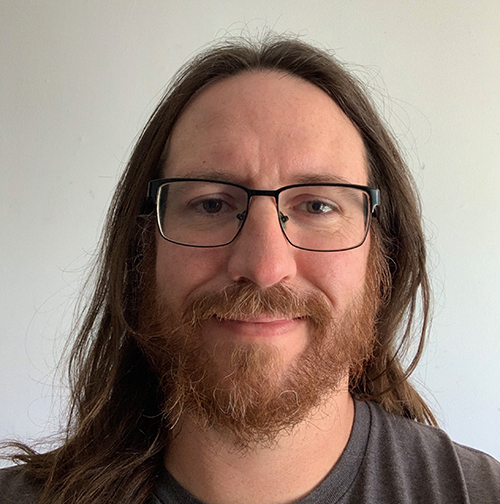
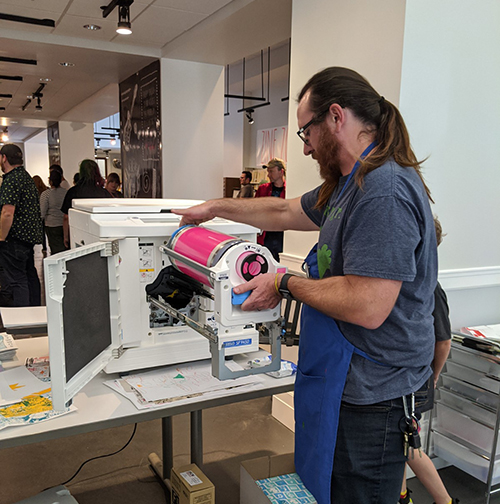
Andrew Kozlowski | Department of Art, Art History, and Design
Community Based Art Practice: Zines and Comics Courses
Funding will support students enrolled in ART3271 Comics and Narrative and ART3930 Zines and Community.These courses incorporate community-based learning into their structure, helping students learn to connect their talents as makers with their community. Students in Comics and Narrative will participate in the Duval Comics and Zines fest, assisting with a live printing event at the Jacksonville Public Library Main Branch, assisting DCAZ attendees as they learn about self publishing by making their own prints on site during the event with our Risograph printer. The Zines and Community class has students team up with community partners to help them tell their stories through creative publications.

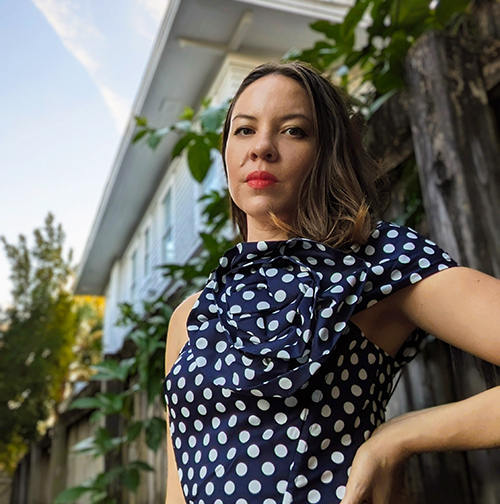
Will Pewitt | Department of English
Jessica Stark | Department of English
Community Through Curation: The Transformational Learning of Editorial Professionalization
Publishing each Spring and Fall, The Talon Review provides students hands-on involvement in publishing by working with experienced mentors to put into practice real-world applications of their literary, design, marketing, and curatorial skill sets. Having begun over a decade ago to highlight student writing, this literary venture has broadened its publication network to generate a larger national presence, putting UNF students in conversation with wider communities beyond campus while strengthening students’ engagement with the arts on campus.
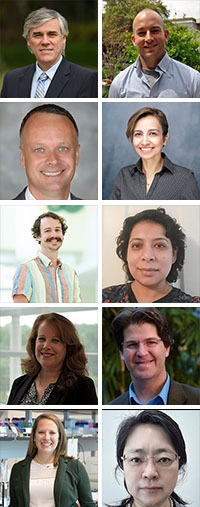
Judith Ochrietor | Office of Undergraduate Research and Department of Biology
Inquiry and Investigation: Institutionalizing Research-Intensive Courses at UNF
Participating Faculty: Andres Gallo, Dominik Guess, Scott Jones, Jennifer Lindemann, Hannah Malcolm, Jonathan Matheson, Nilufer Ozdemir, Fatima Rehman, Dan Richard, Debbie Wang
Through this High Impact Practice (HIP) grant, ten faculty were supported in the development of research-intensive courses at UNF. These courses had been previously tagged as undergraduate research intensive (URES) by their home departments. Working with guidelines and a rubric developed to be comparable to similar designations used throughout the State University System of Florida, these courses now meet the standards for designation as “research intensive” at the course or section level. This project plays a major role in achieving Goal 1.C. of the UNF Strategic Plan, which is to establish initiatives to ensure that all students have access to coordinated and scaled high-impact practices (e.g., student research) to strengthen the academic experience.
Awardees 2023
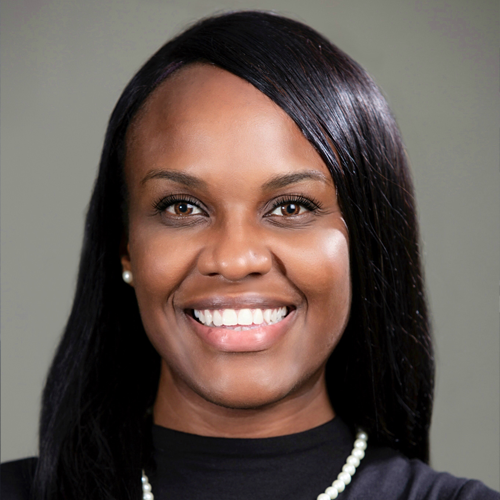
Marie Smith-East | School of Nursing
HelpMindMeNow: A Community-Based Participatory Geographic Information Systems (GIS) support & referral tool for improving access to mental healthcare
During the COVID-19 pandemic, individuals experiencing mental health issues and given concerns over receiving services in person, often turned to telemental health for assistance in finding mental health resources, group support, and providers. With the benefits of ease of use, schedule flexibility, increased adherence to care, ability to receive services across geographic areas (particularly for those seeking care in rural areas and/or specialized care such as women, children, elderly, LGBTQ+, minorities, and individuals with serious mental illness), the use of telehealth continues. However, individuals may struggle to find specific mental health services from reputable sources and if located, they may not be able to pay or find someone who takes their insurance. HelpMindMeNow™ is a proposed pilot community-based participatory web-based Geographic Information Systems (GIS) application designed to utilize community members (individuals seeking care, agencies, and mental health clinicians) in the state of Florida, and University of North Florida graduate students studying mental health, in creating a web-based support and referral tool for improving access to telemental healthcare.
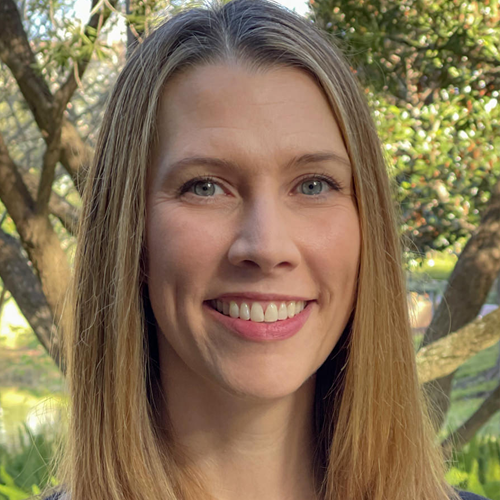
Amber Barnes | Department of Public Health
Primed for Research: Fieldwork and Laboratory Training for Students
As our university continues to strive for research excellence, it is imperative that we find ways to engage students in this process. This grant will allow the Coastal One Health and Zoonoses (COHZ) lab in the Department of Public Health to build up the necessary laboratory materials to support several studies with regional, national, and international One Health partners. These multi-year projects will allow interdisciplinary students the chance to partake in fieldwork to collect samples and spatial data, conduct laboratory and statistical analysis for the presence of zoonotic pathogens and related risk factors, and prepare scientific works such as peer-reviewed journal articles and conference to disseminate relevant findings to larger human and veterinary public health audiences around the globe.
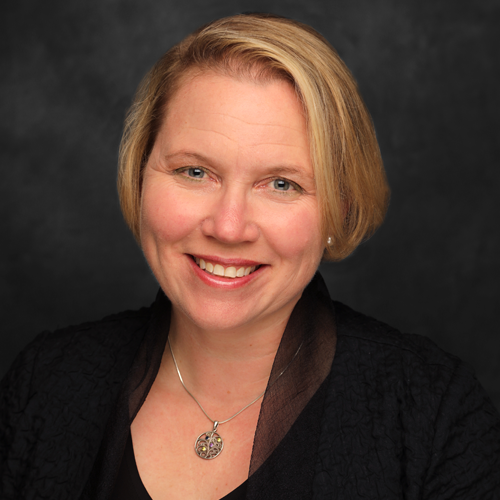
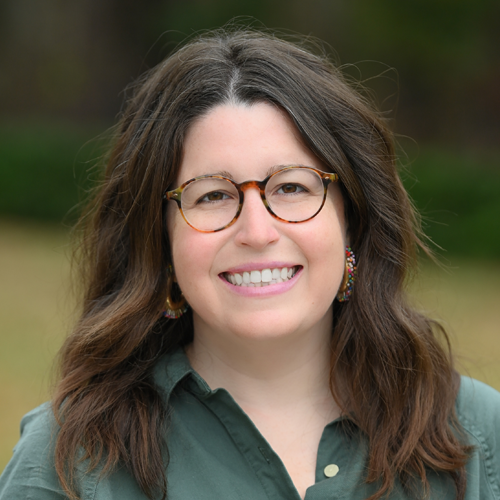
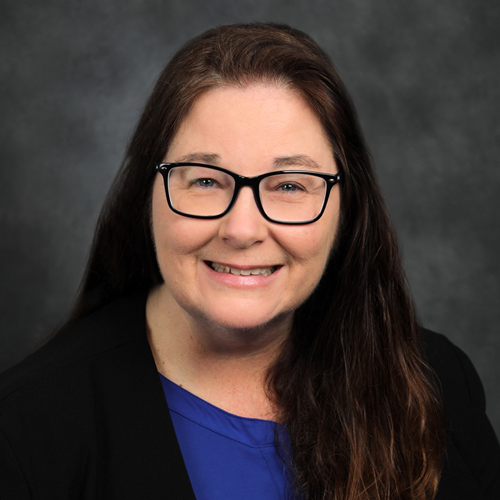
Rebecca West Burns, Megan Lynch & Wendy Baker | College of Education and Human Services
Integrating Inquiry into Student Teaching Internship Experiences through a Collaborative Summer Inquiry Community
For teacher candidates in the College of Education and Human Services who are learning to teach, practitioner inquiry, as a high impact practice, provides a framework for teacher candidates to use now and in their future classrooms to be re-positioned as knowledge-generators, active participants in classroom research, and agents of change. Faculty and students in the Department of Teaching, Learning, and Curriculum will form an inquiry community that will engage in a summer-long inquiry cycle into how inquiry can be systematically and developmentally appropriately integrated into student teaching and clinical field experiences.
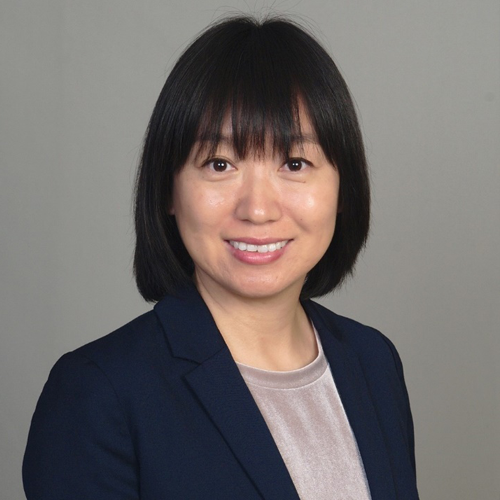
Zhiping Yu | Department of Nutrition and Dietetics
Experience and the Impact of Tele-health Counseling Program on Dietetic Students
A tele-health nutrition counseling program has been providing nutrition interventions by supervised dietetic graduate students to uninsured low-income patients in Northeast Florida from 2019-2022. This project aims to assess the perspectives of dietetics students on the effectiveness of providing nutritional counseling via tele-health to patients and the impact of program on students themselves. In this project, past and current dietetic students who have participated the tele-health counseling program will be interviewed via Zoom on their experience and opinions regarding the program. The findings will help us advance the understanding the implication of tele-health in nutrition counseling and education of dietetic students.
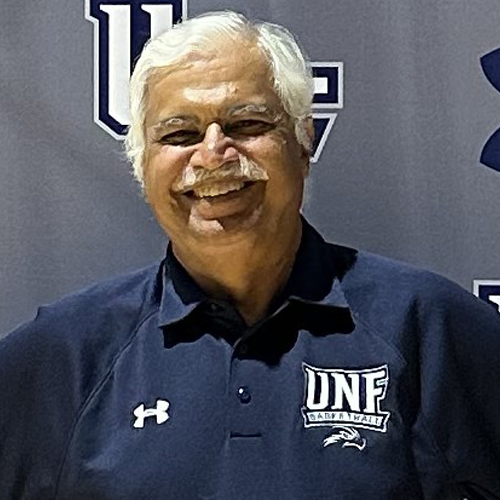
Shyam Paryani | Department of Health Administration
Personal Health Monitoring of Athletes
To analyze physical performance, physiological status and mental alertness, UNF athletes will be asked to wear a wearable activity monitor, the Fitbit5, during the day excluding when they are playing official games or training for the academic year. The goal of this study is to collect physiological data on a continuous basis and correlate it with sports team performance to further the use of this technology to assist in the return-to-play for UNF athletes. This study will also help determine whether continuous monitoring allows for decreased injury frequency and duration. We plan to study basketball, soccer, baseball, softball, track and field and volleyball athletes.
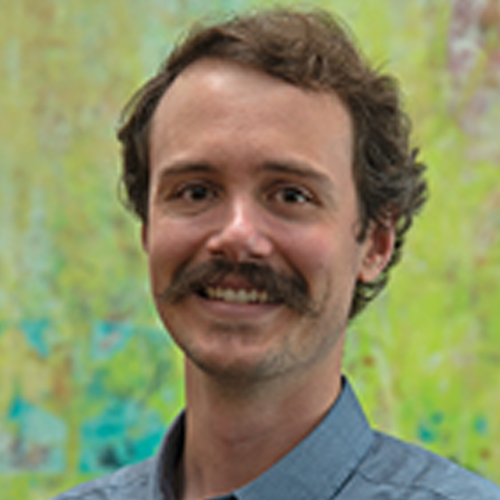
Scott Jones | Department of Biology
Field-based research experiences are a powerful teaching tool in Biology, imparting a lasting understanding of natural systems and skills that are highly sought after on the job market. However, field-based experiences are often offered to students on an individual basis in faculty labs or over the summer, limiting the number of students who can participate. This project leverages UNF’s unique location by offering a course-based undergraduate research experience (CURE) in coastal ecosystem ecology. This field-based CURE will give students the opportunity to conduct authentic place-based research at UNF, enhancing their scientific understanding of ecosystems in northeast Florida, gaining skills in research communication and writing, and expanding their network by interacting with professionals from federal and state agencies.
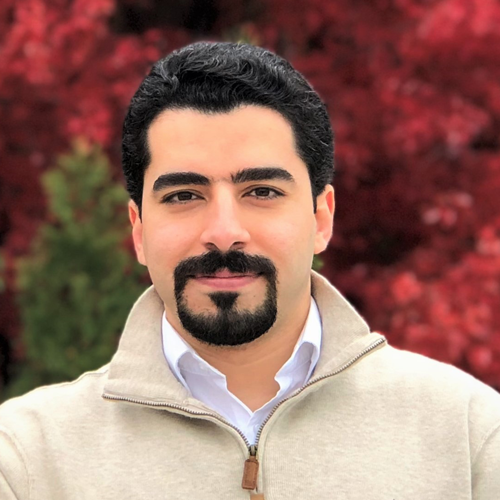
Ramin Shabanpour | College of Computing, Engineering & Construction
Integrating Community-based Service Learning and Civil Engineering Capstone Design to Enhance Infrastructure Resilience in Northeast Florida
This project aims to enhance the structure of the civil engineering capstone design by integrating community engagement, and more specifically, community-based service learning (CBSL), into the course curriculum. CBSL is a form of experiential education in which students engage in real-world projects that address local community needs together with structured opportunities intentionally designed to promote student learning and development. Such a program allows students to apply their theoretical knowledge to real-world problems, thereby enhancing their learning outcomes and providing a valuable service to the community at the same time. Particular preference will be given to multidisciplinary projects that aim to enhance the resilience of community infrastructure against extreme weather events in Northeast Florida.
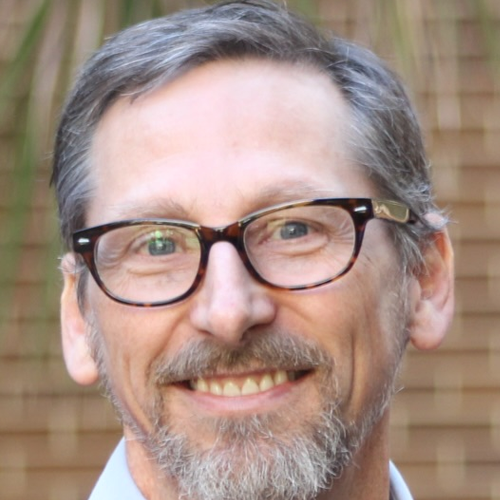
John Hatle | Department of Biology
Research in Biology
Many excellent UNF Biology students do not get to participate in on-campus research (i.e., a science internship) due to limited financial means. This is inequitable for students, and it creates a barrier to training the best next generation of scientists. This project creates research opportunities for exceptional students who have not participated in research because of finances. Selected students will be paid to conduct research at UNF.
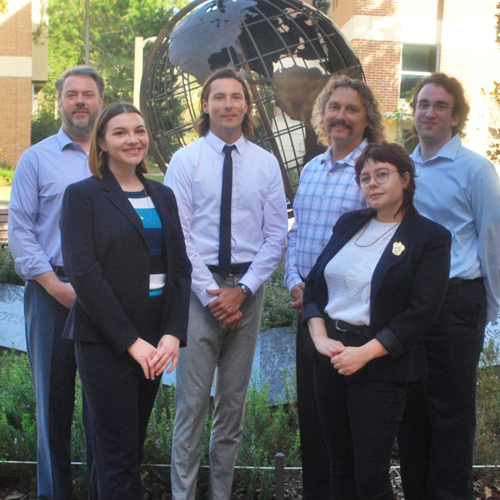
Mike Binder | Department of Political Science and Public Administration
Florida Survey Spring 2023
Our goal is to cultivate and facilitate interest in evidence-based practice, quantitative analysis, data science, political and public policy polling. Students from diverse backgrounds, including PORL student employees, directly participate in the data collection process, learn about social science and public opinion research methodologies, and have the opportunity to see the results of their efforts in local, state, and national news media publications. Students will collect survey data at the PORL facility with its 27-station Computer Assisted Telephone Interviewing (CATI) system. The project will include upwards of 300 students from a variety of classes across the university.
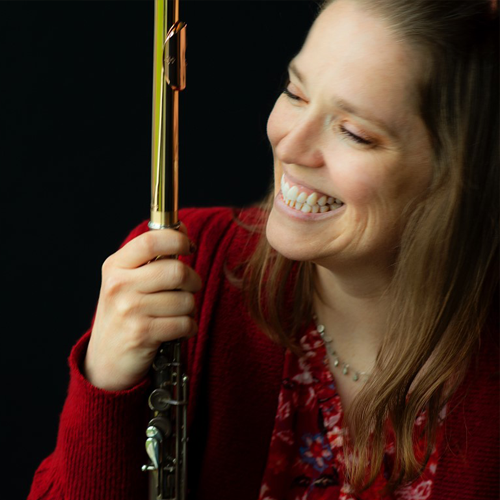
Sarah Young | School of Music
Flute Choir Day
Flute Choir Day is a one-day festival hosted by the University of North Florida Flute Studio, with Ensemble 126, an award-winning professional flute ensemble. Our goal is to grow and engage the flute community not only within the university, but within the Jacksonville community, by inviting our studio alumni, professional flutists, as well as developing flutists and amateurs to participate. As the student ensemble receives feedback from professional ensemble members, the students will have a clearer understanding as to how they can improve in their own chamber music making, as well as how to teach their own future students in this capacity. They will also have the rare opportunity not only to perform for such a prestigious ensemble, but also hear them live at their own university as hosts. The day will consist of lectures, masterclasses, and performances from the Ensemble 126 that will directly engage and challenge our own students, and will include a world premiere from our UNF faculty composer Dr. Joshua Tomlinson.
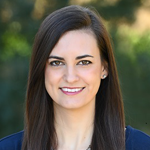
Suzanne Ehrlich & Amanda Pascale | Department of Leadership, School Counseling, & Sport Management
Inclusive Design in STEM Online Courses to Improve Student Success
In our recent study at UNF examining inclusive design as a predictor of course pass, our research suggested that higher inclusive design scores were significantly correlated with higher pass rates in online courses. We found that for every one-point increase in inclusive design we could expect to see a .23 percent increase in course pass rate. In this project, we will deliver training aligned with the inclusive design work used in the study to promote inclusive design in STEM online courses. Faculty will benefit from a community of practice around strategies and implementation for increasing inclusiveness in their online courses.
Awardees 2022
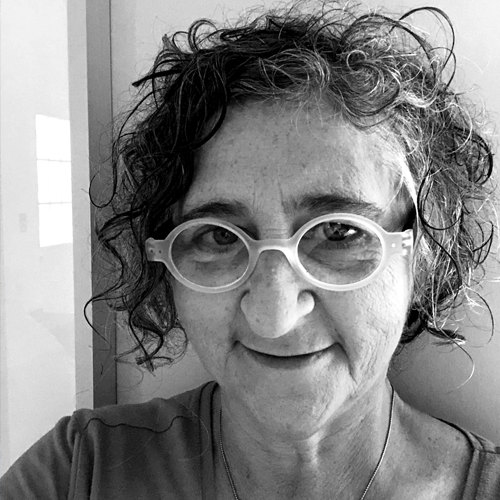
Sheila Goloborotko | Department of Art and Design
Moving the Margins: Many Small Gestures
This funding will support the research, development, collaboration, and production of a responsive solo art exhibition titled Many Small Gestures for The Corner Gallery at the Jessie Ball DuPont Center. This solo exhibition is part of Moving the Margins, a residency program developed by curator Shawana Brooks that matches artists with nonprofits and grassroots organizations, current tenants of the Jessie Ball DuPont Center. Together, artist, students, and nonprofit organizations become a Cohort of Change-makers hosting community conversations to address intersectional themes and shared interests. Such conversations are the seeds of the creative process that materializes in artwork for an exhibition that transforms the vacant retail space at The Jessie, on the corner of Ocean and Adams Streets in Downtown, The Corner Gallery. Once installation is complete, students will serve as facilitators, walking the public through the installation during special events. This service and community-based learning experience will bring students a unique opportunity to engage with the diverse public presenting the work they were involved in creating.
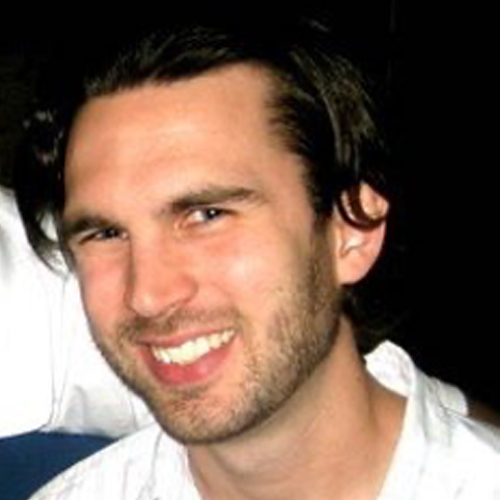
Will Pewitt, M.F.A. | Department of English
The Shadow Company: Spotlighting Gender in Much Ado
Student will be convening a Writers Room to adapt one of Shakespeare’s most complex comedies, Much Ado About Nothing—a play thematized by stigmatic gendering and its dynamics with the problematic potency of class—in order to give students a space to not just deconstruct this inherited drama but to reconstruct it more inclusively. Through this grant, our cooperative student/faculty project will not only remunerate students for their creative work but will also fund collaboration with experts from the world-renowned Globe Theatre in London before the production can ultimately be toured to various local community partners. The first steps in this theatrical process are writerly choices regarding setting, pacing, and aesthetic revisioning that are all encompassed within script work—a task that, though vital, is often underappreciated since it is done off stage and behind the scenes. Yet by funding this crucial creative component, this company of young writers can be recognized for their work done in the “shadows”—a colloquial term in Shakespeare’s day for members of theatrical companies.
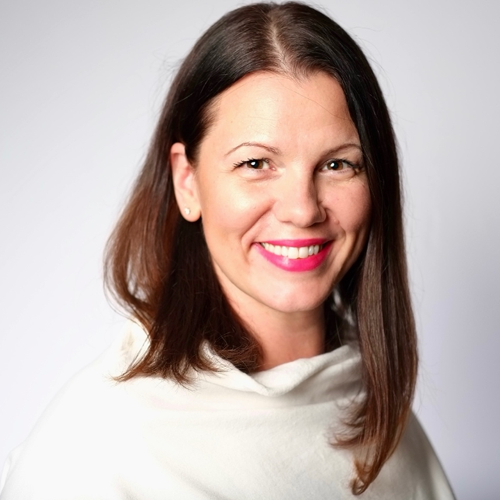
Jelena Brezjanović | Department of Sociology, Anthropology and Social Work
Immersive Classroom: Using Virtual Reality (VR) to Teach Diversity Appreciation
The continual human rights abuses faced by underrepresented and marginalized groups in the United States are an urgent indication that finding broader and more innovative ways to teach diversity appreciation is crucial to creating a more just society. As more disciplines make positive steps to expand their curriculum and incorporate diversity topics, barriers (e.g. student apprehension, lack of adequate resources, low department support; heightened tensions; lack of empathy, etc.) tend to dilute positive learning outcomes. This project will address the aforementioned barriers of teaching diversity in the classroom by developing a course that combines virtual reality (VR) technology and anthropological methods to create space, adequate resources and immersive experiences to help enhance student empathy and improve learning outcomes.
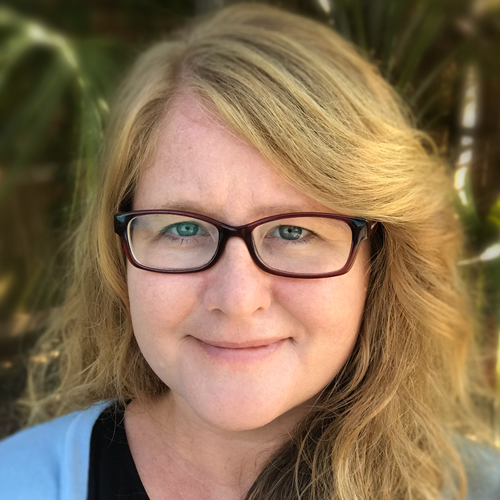
Kally Malcom, MFA | Department of Art, Art History, and Design
19th Century Photography Revisited: Wet Plate Collodion Workshop and Visiting Artist Lecture
In photography, wet plate collodion was one of the earliest processes used widely since its advent in 1851. Though firmly tethered to the 19th century, it remains a popular and relevant form of image-making in contemporary times. This grant will allow students and the community to attend a public lecture with visiting artist and wet plate collodion expert, Euphus Ruth. In addition, photography students will be a part of an intensive workshop where they will make images utilizing this process, which will then be exhibited in The Union Gallery on UNF’s campus.
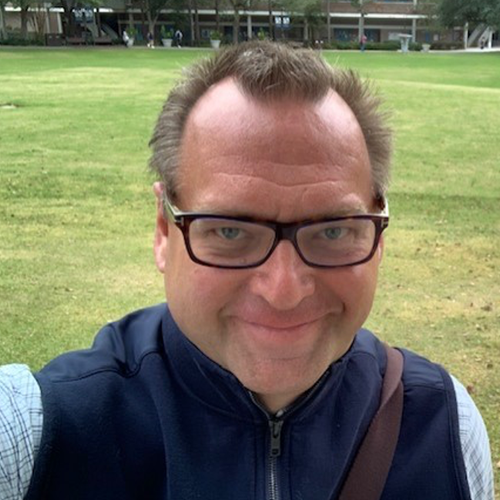
James P. Beasley, Ph.D. | Department of English
Writing as Social Action: The Lincolnville Green Book
The Writing as Social Action course has again partnered with the Lincolnville Museum to conduct research and create a “Green Book” project. This project takes as its object of study how writing technologies can be used to address injustices, collaborate with community groups, and advocate for social change. Throughout the segregated South, it was dangerous to be an African-American traveler. This was addressed by The Negro Motorist Green Book, an annual listing of lodging, diners, gas stations, and other businesses. The Green Book acted in similar ways as some social media platforms, collecting participation and then directing customers to locations of safety. Students will work with the Lincolnville Museum and Cultural Center and the St. Augustine Historical Society to create an updated St. Augustine “Green Book” utilizing curation technologies.
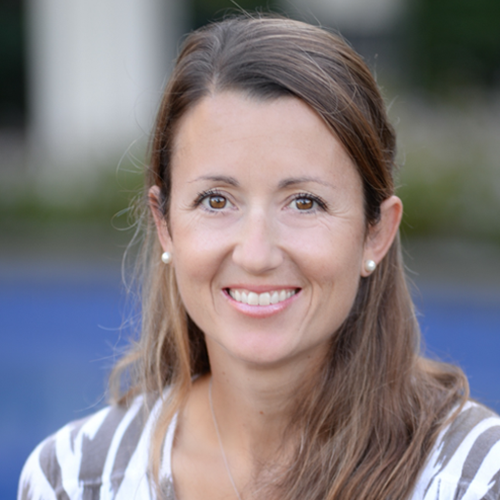
Erin Largo-Wight | Department of Public Health
The Community Partner Project
The Community Partner Project is a community-based learning opportunity that is a structured assignment within a course. Students need opportunities to expand learning and put classroom concepts to practice in the real world. The general goal of the Community Partner Project is to strengthen students’ course learning outcomes through community involvement. Specifically, through the Community Partner Project, students will develop health communication skills, interact and network with public health professionals, and increase their knowledge of the breadth of public health in the local community, as well as support our local public health community and efforts.
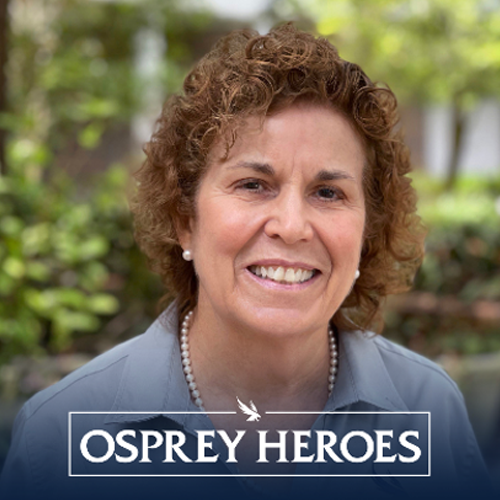
Linda K. Connelly | School of Nursing
Brooks Health Happy Hour
Falls in Brooks Rehab pose a significant problem for both the patient who falls and the health care system. In the rehab setting the goal is to restore function including ambulation. Patients with brain injury (stroke), spinal cord injury, and neurological disorders, so the patients when the patients are not being observed they attempt to walk and fall. On between their therapy sessions a staff member and the 2nd semester nursing students interact with these patients during Brooks Happy Hour and have decreased the fall rate. An education tool is being developed by myself, Brooks staff and the students on fall prevention and the Brooks Happy Hour Fall Prevention Program.
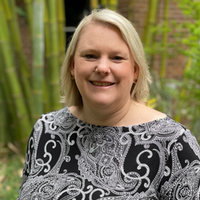
Terri N. Ellis | Department of Biology
Hands-on Student Training in Microbiology Research
Over the past 18 months, the pandemic forced most UNF Biology courses to develop remote lab exercises. While these exercises were developed with care and quality learning objectives, students from these remote labs are lacking in hands-on familiarity with basic molecular techniques and equipment that are necessary for jobs in these fields. One of the best ways for students to rapidly develop these hands-on skills is though participation in an authentic, immersive research project. This proposal aims to give students the opportunity to gain hands-on lab experience by joining my research lab. Priority will be given to those students without hands-on lab experience, allowing for direct training in these necessary tactile skills. . In the research lab environment students can rapidly master the hands-on skills fundamental to these investigations while also making connections between concepts across the biology curriculum. This experience will also broaden students understanding of the process of scientific research, improve their ability to communicate complex scientific ideas, and expose them to possible careers and employment opportunities.
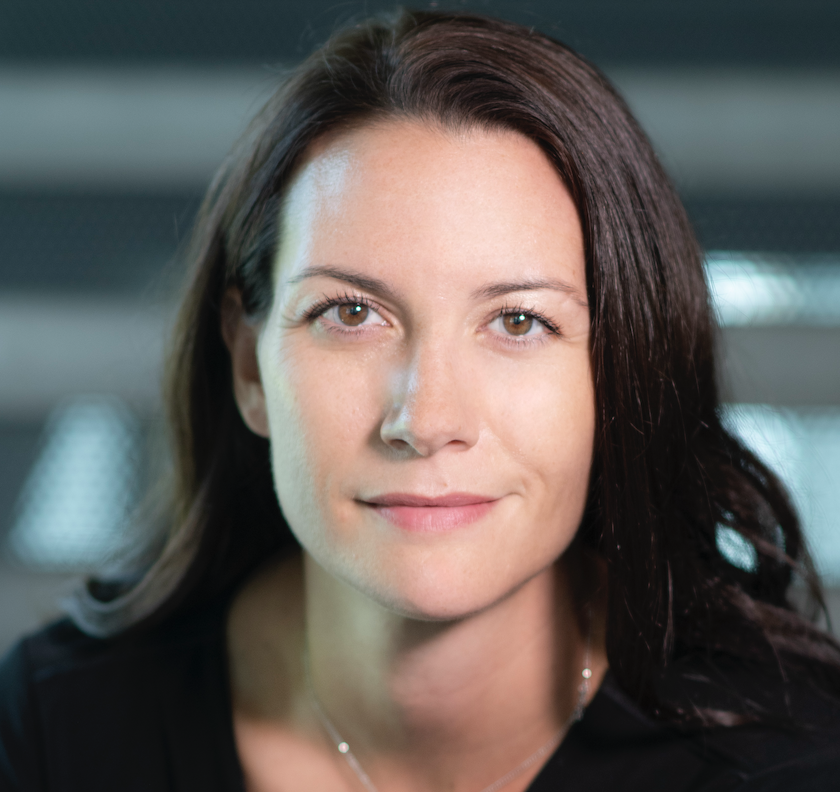
Erin Bodnar | School of Music
Banda Sinfonica de Arroyito: A Service-Learning and Community-Based Immersion Music Experience
Our project combines service-learning and community-based immersion with music education and music performance. Undergraduate students will travel to Arroyito, Argentina to teach and perform music within the community. Students will bring with us donations of instruments and other musical materials that are desperately needed by the Banda Sinfonica de Arroyito and give instruction on instruments and music, sharing our knowledge with the community musicians. Further, we will learn about traditional Argentinian music and dance as well popular music in Argentina today.
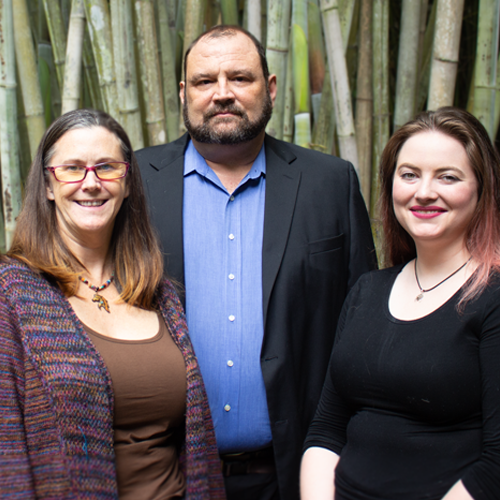
Katryne Lukens Bull, MPH, Ron Lukens Bull, Ph.D., Maria Schedin, MPH | Department of Public Health
Culture, Religion and Wellness in Bali, Indonesia
For this study abroad journey to Bali, Indonesia, students will enroll in two courses, one in public health and one in anthropology, and gain multi-disciplinary insights and skills to address “Big Questions” such as how to end health, economic, and social disparities. Student will examine relationships between national government/culture and local culture including the relationships between religious minorities and religious majorities. As both a way to reflect and to express their intellectual journey, students will document the entire travel experience through faculty guided social media posts.
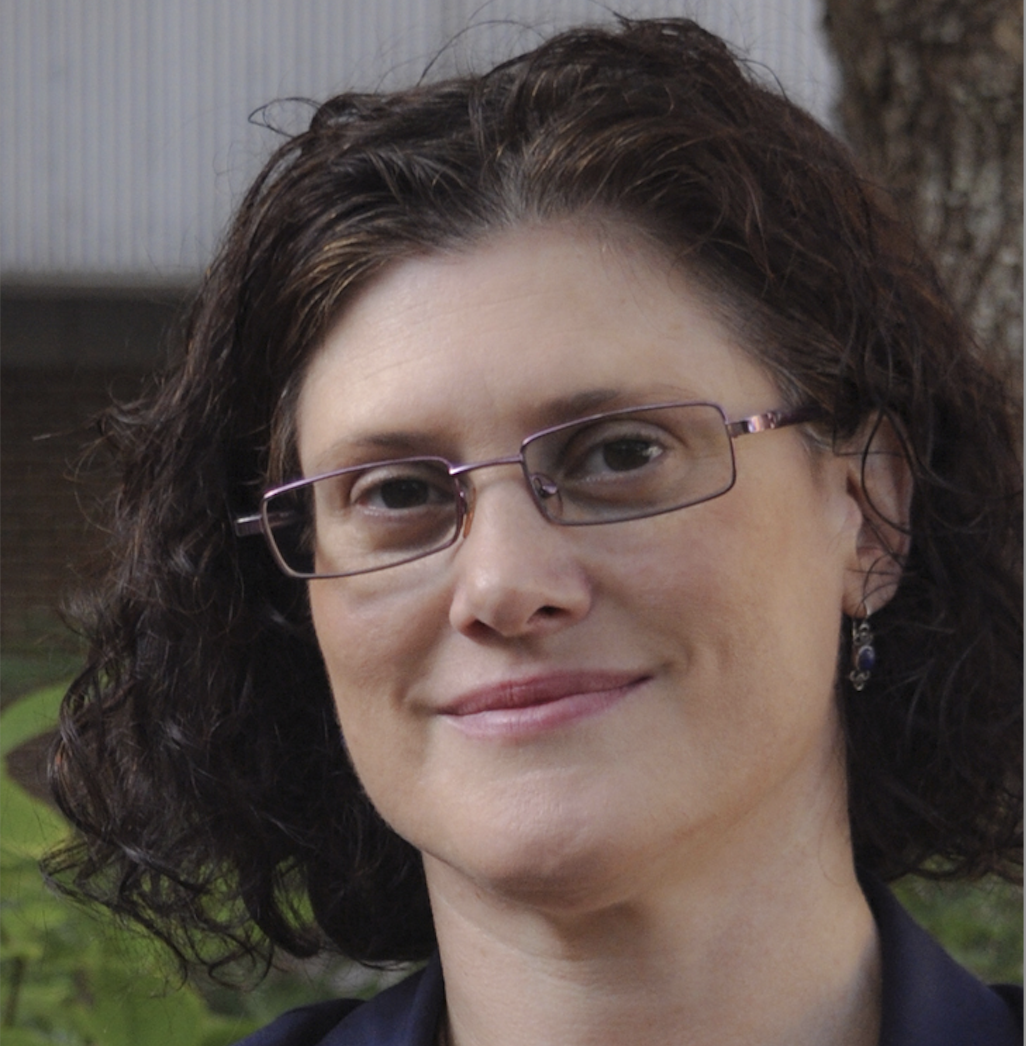
Nuria Ibáñez Quintana, Ph.D | Department of Languages, Literatures and Cultures
Spanish Spain Languages and Cultures in Contact Program
The Spanish Spain Languages and Cultures in Contact program offers students a language and culture immersion experience. The experience serves as a channel for reflection upon intercultural and multilingual communication. Students live with host families and take classes at the Universidad de Burgos. The program includes visits to Segovia, Granada, Toledo (the three multilingual and multicultural centers during the Middle Ages in Spain), Madrid, Bilbao and other historic sites in Burgos and in the Basque Country.
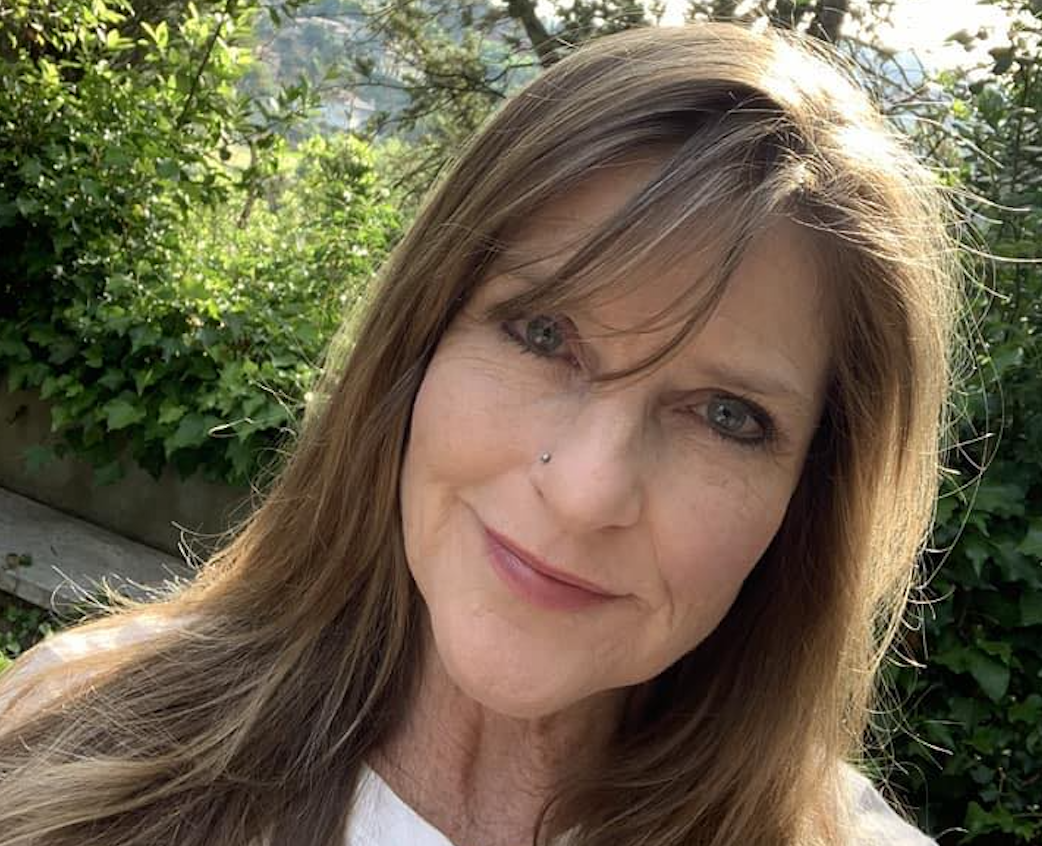
Katrina W. Hall, Ph.D, Tara Rowe, Ed.D., Adel ElSafty, Ph.D. | Department of Teaching, Learning and Curriculum
UNF Engineers and Educators in Italy: Synergistic Learning and Inclusivity in a Global Community
Expanding on the “Whole Child” concept, this holistic study abroad spans 16 days in beautiful Italy, with visits to Rome, Assisi, Florence, the International Montessori Centre, and University of Perugia. With Corciano’s beautiful Villa Pieve Country House as homebase, activities include touring ancient sites, participating in historic restoration, exploring a medieval castle, leading a STEM Camp for children with autism, visiting schools and universities, and creating a digital guide to making university study abroad accessible to those are neurodivergent or have exceptionalities.
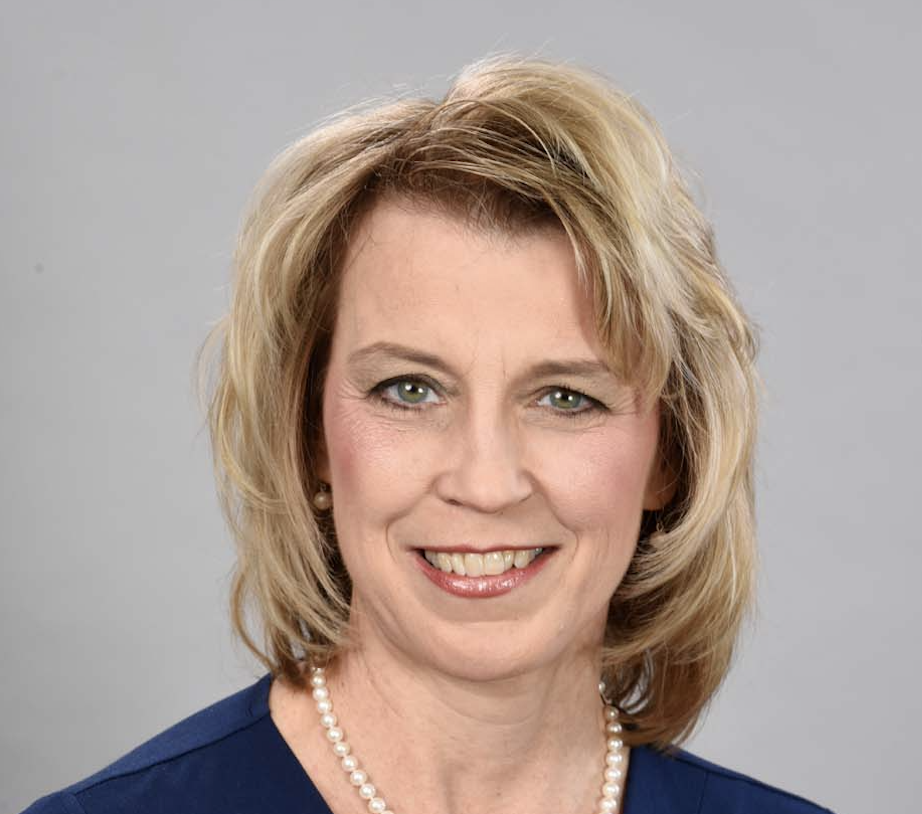
Lauri Wright, Ph.D., RDN, LD/N, FADA | Department of Nutrition & Dietetics
International Connections: Dietetic Interns Treating Malnutrition in Ghana
Malnutrition is a serious issue in children and hospitalized patients in Ghana. Identifying and treating malnutrition is one of the primary skills that dietetic interns must achieve competence to be successful in practice. Additionally, cultural competence healthcare providers improve health outcomes and quality of care. This project is a short-term cultural immersion to Accra, Ghana focused on improving dietetic interns’ cultural competence, nutrition skill and self-efficacy by working in hospitals and community to identify and treat malnutrition.
